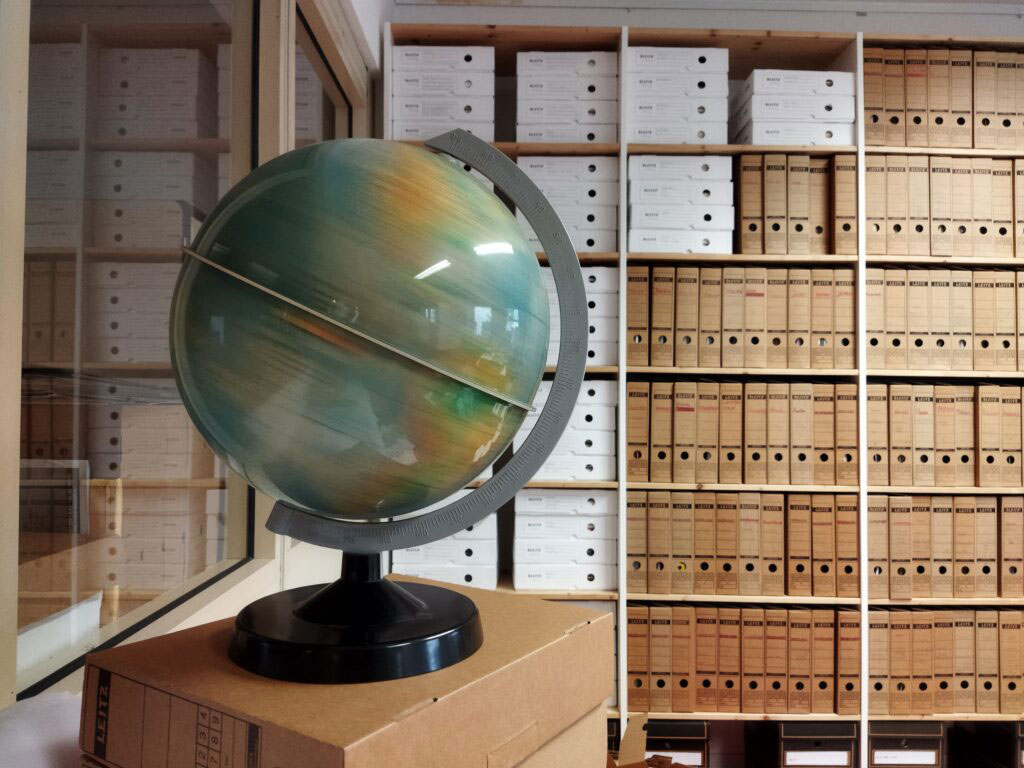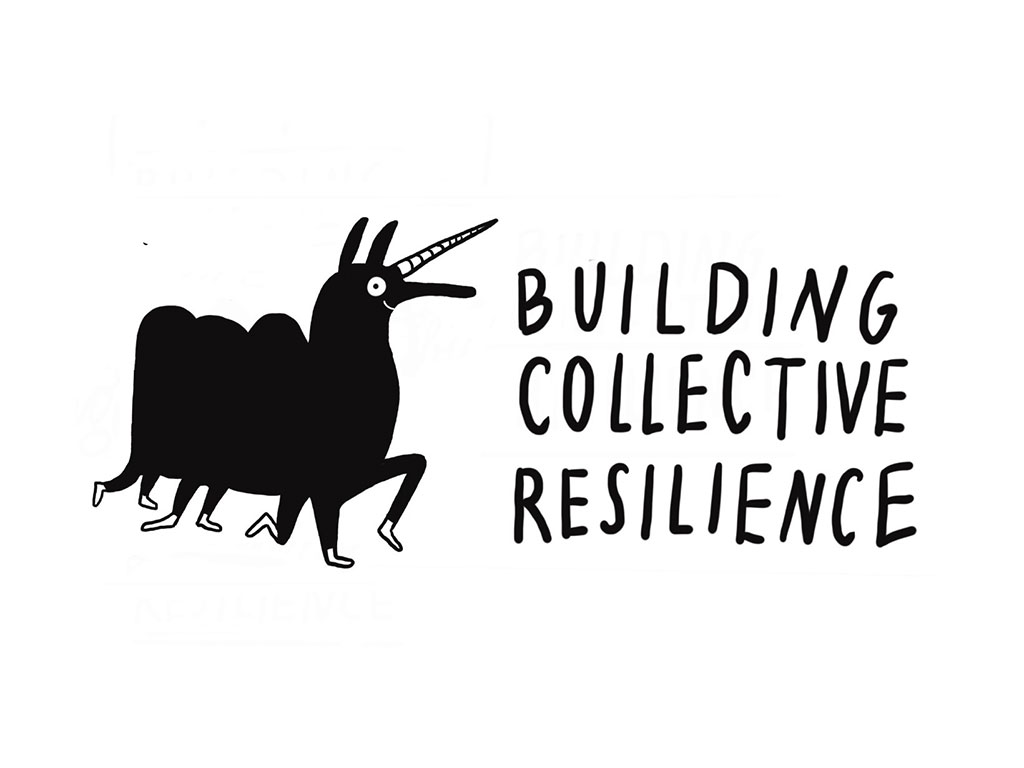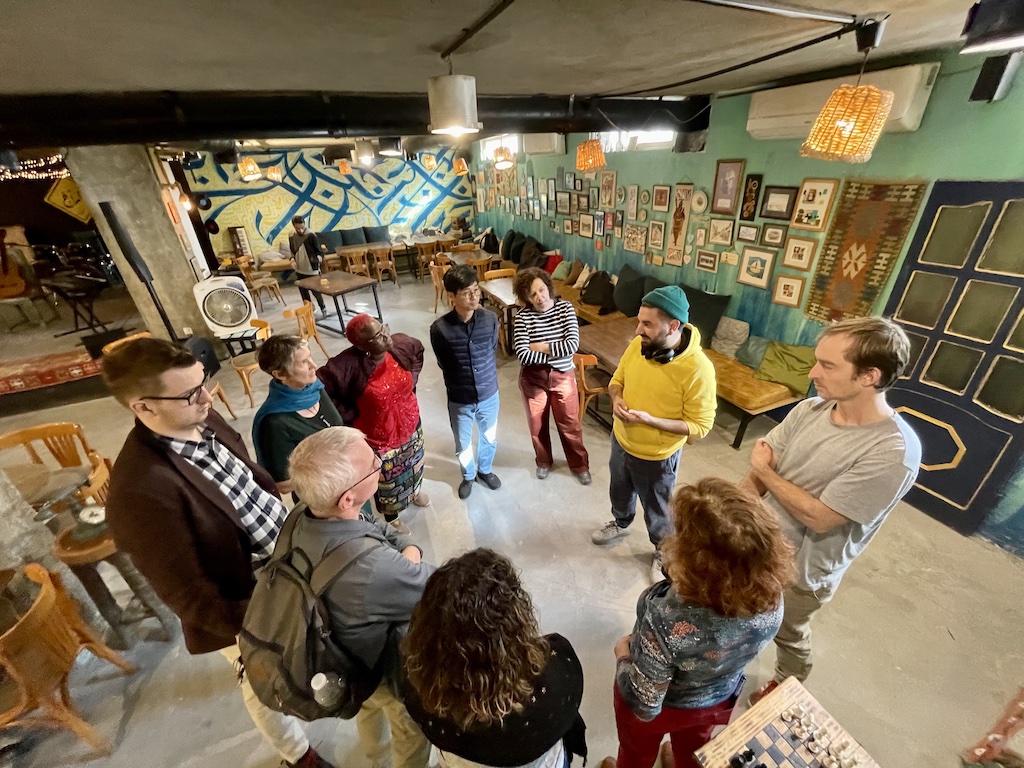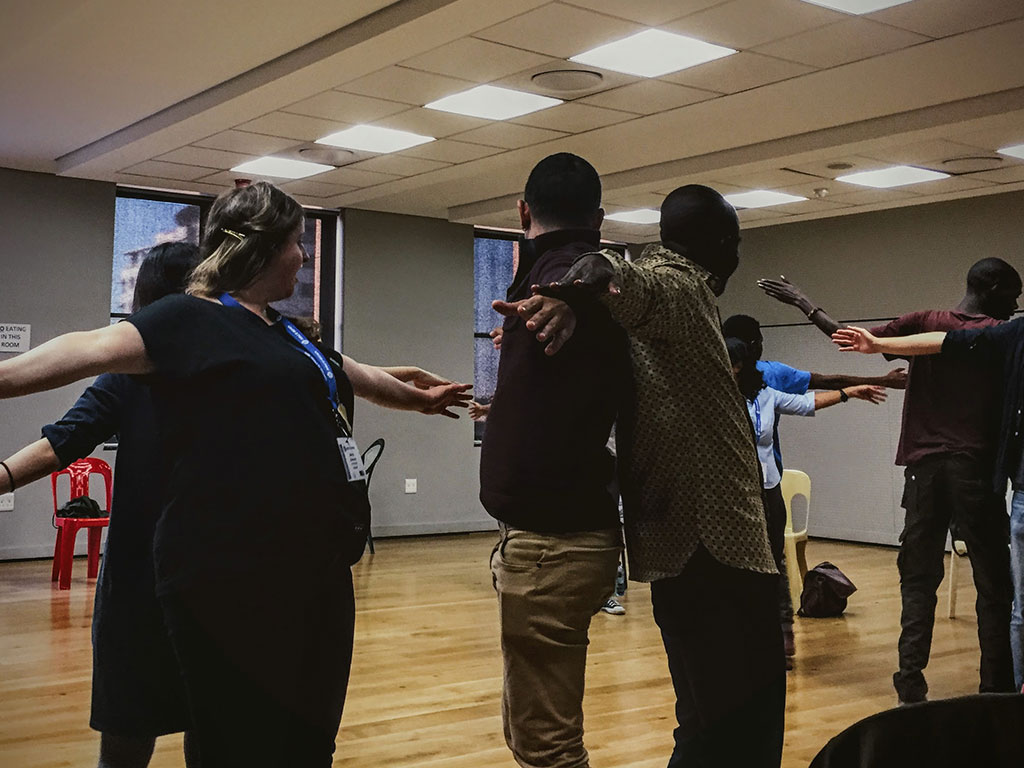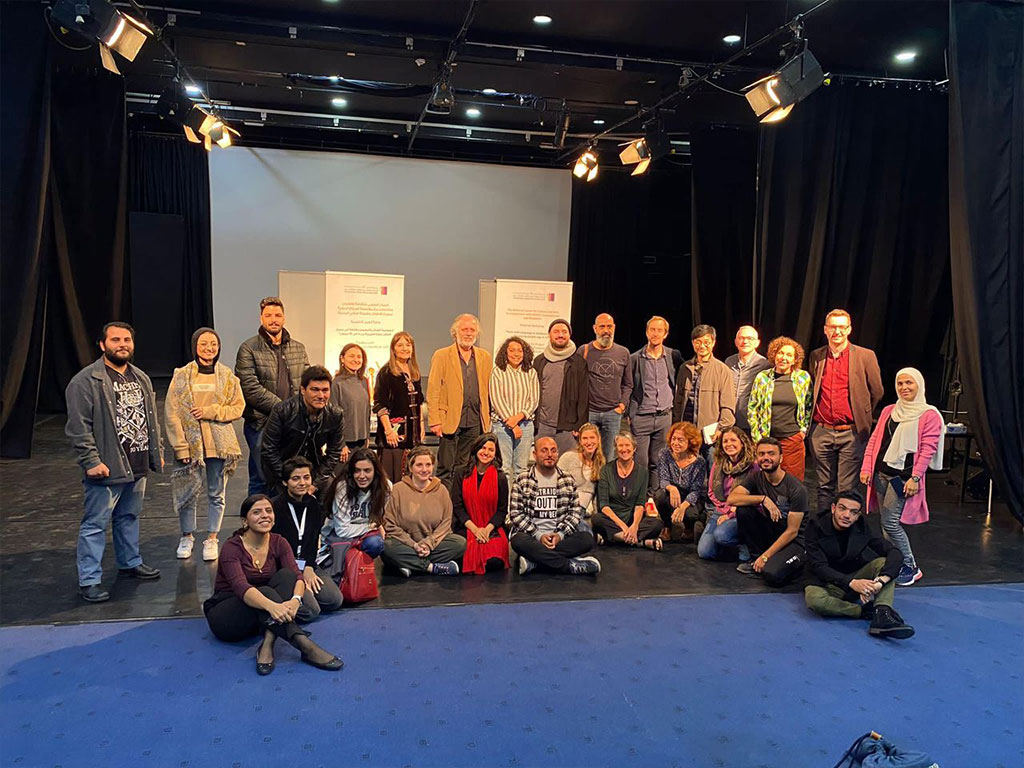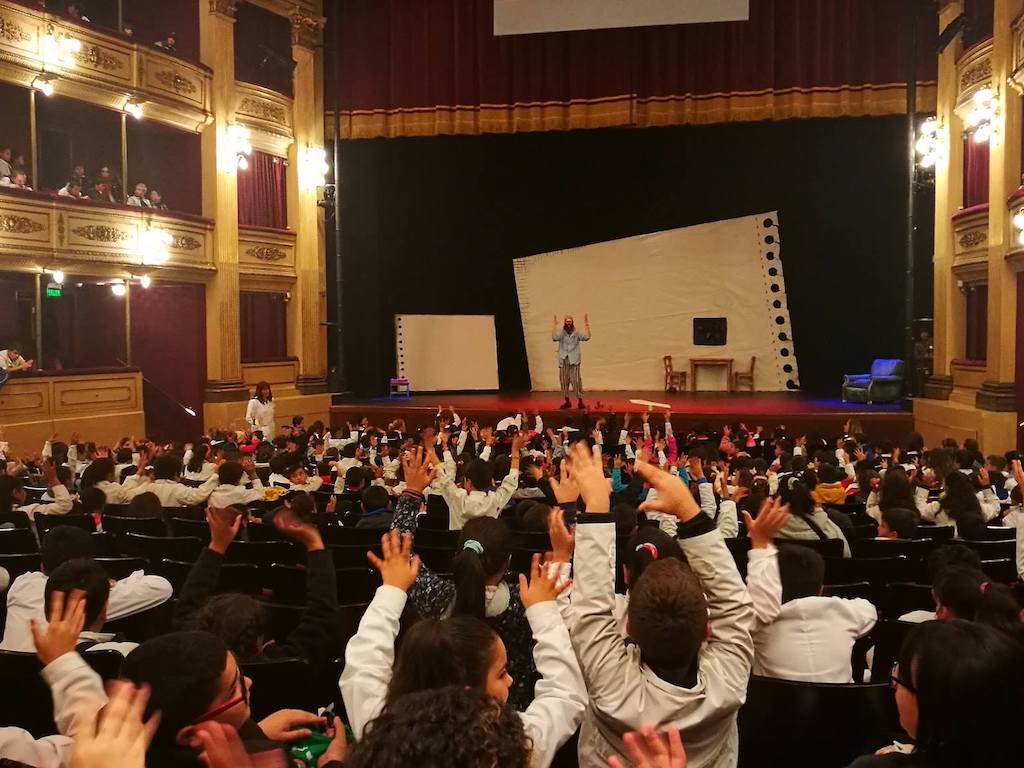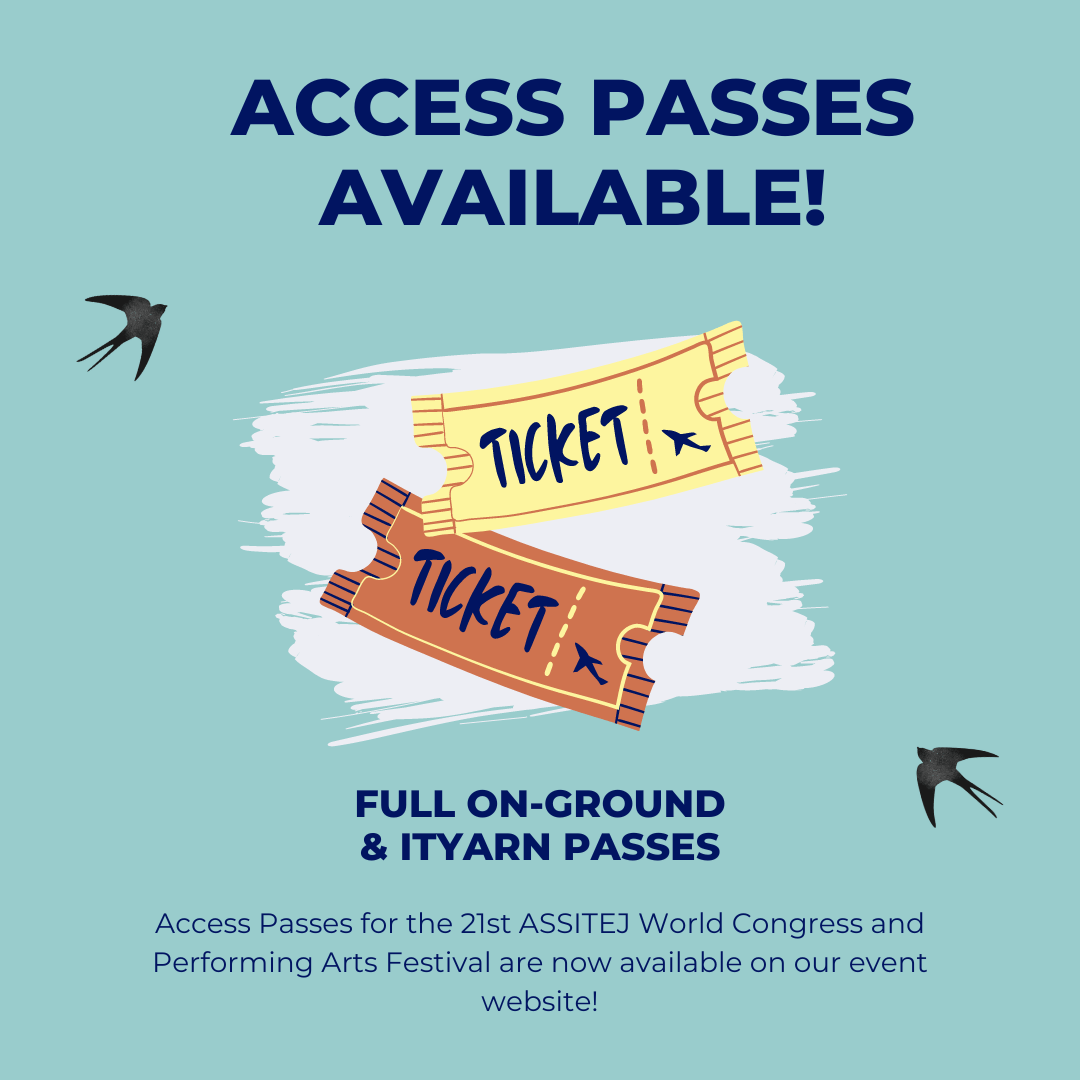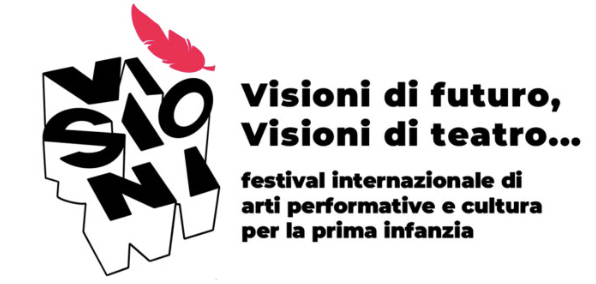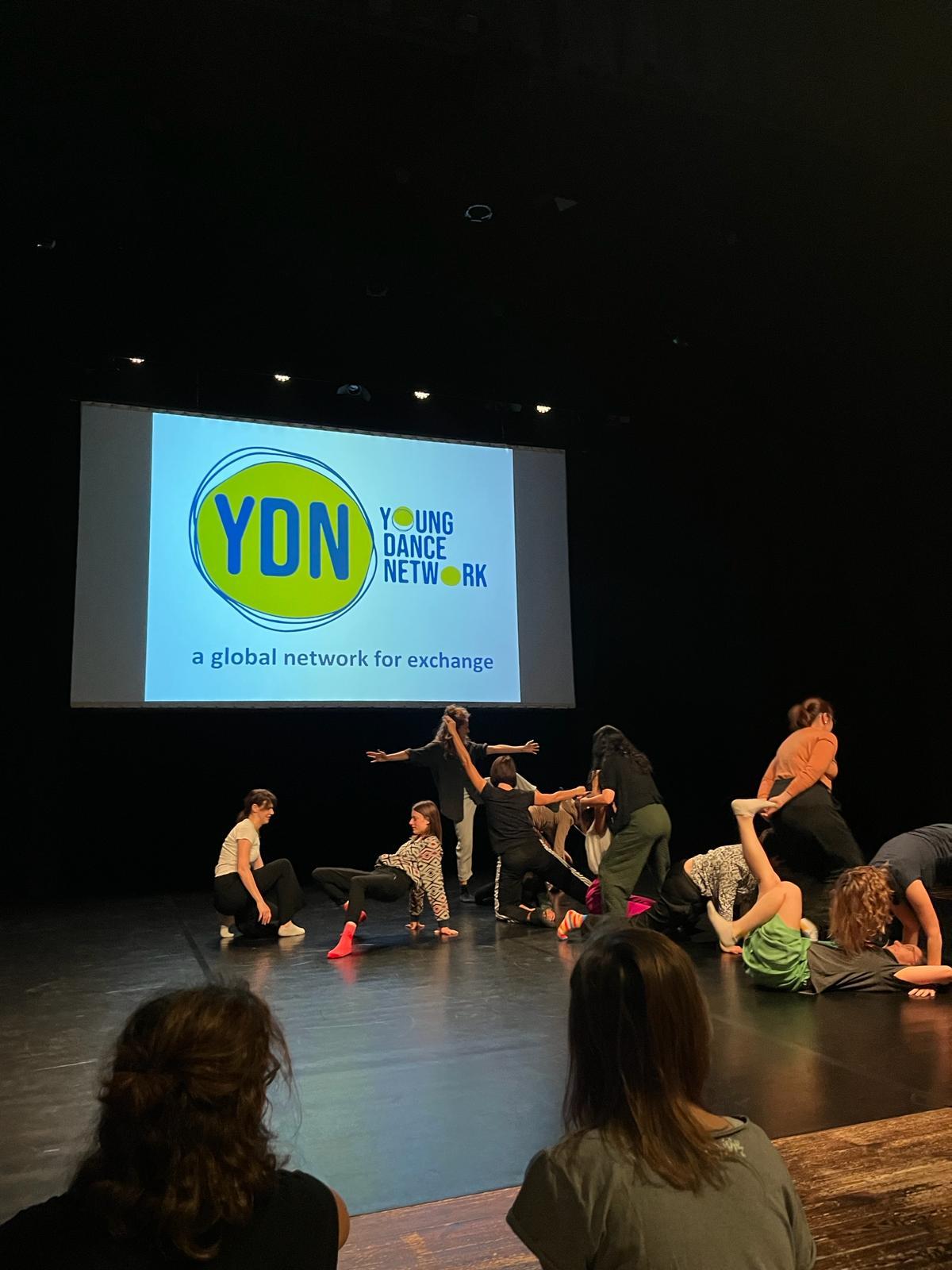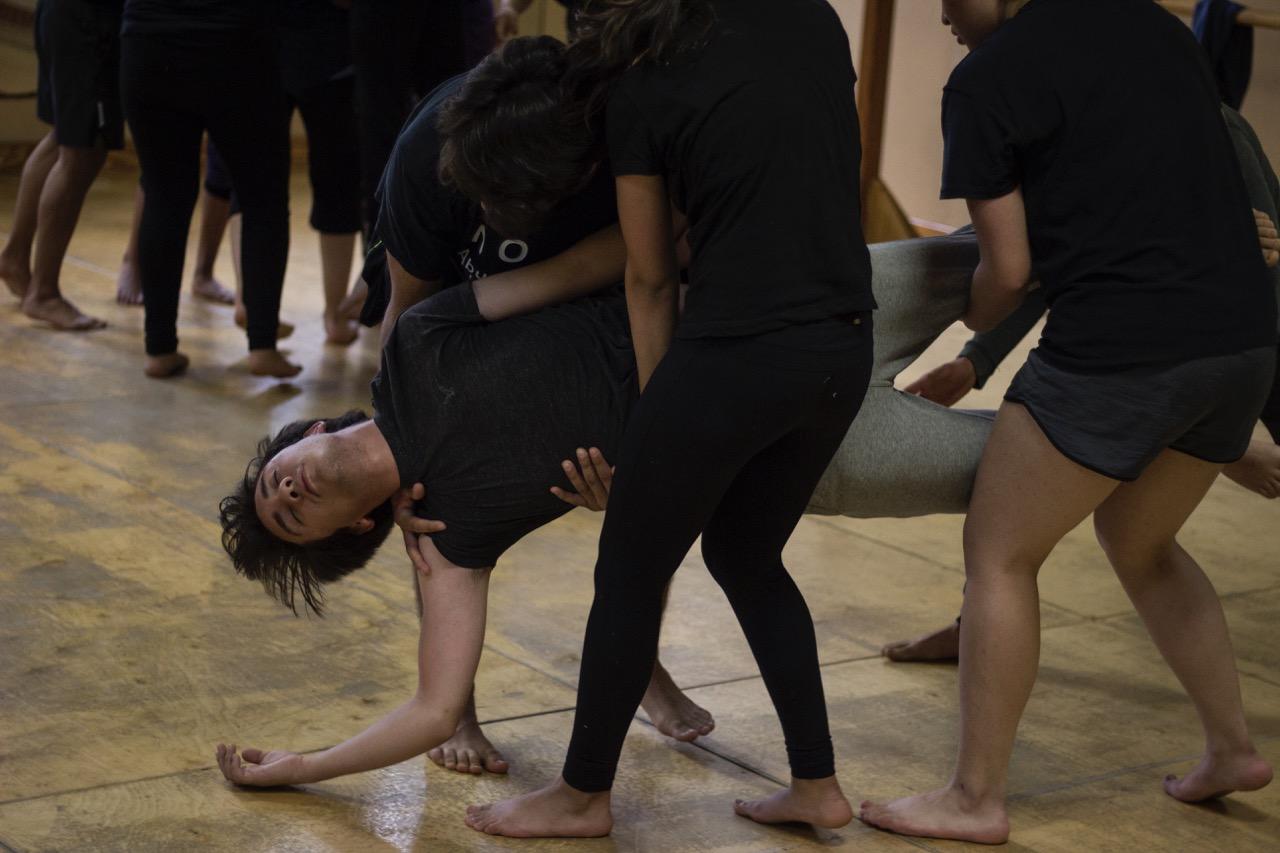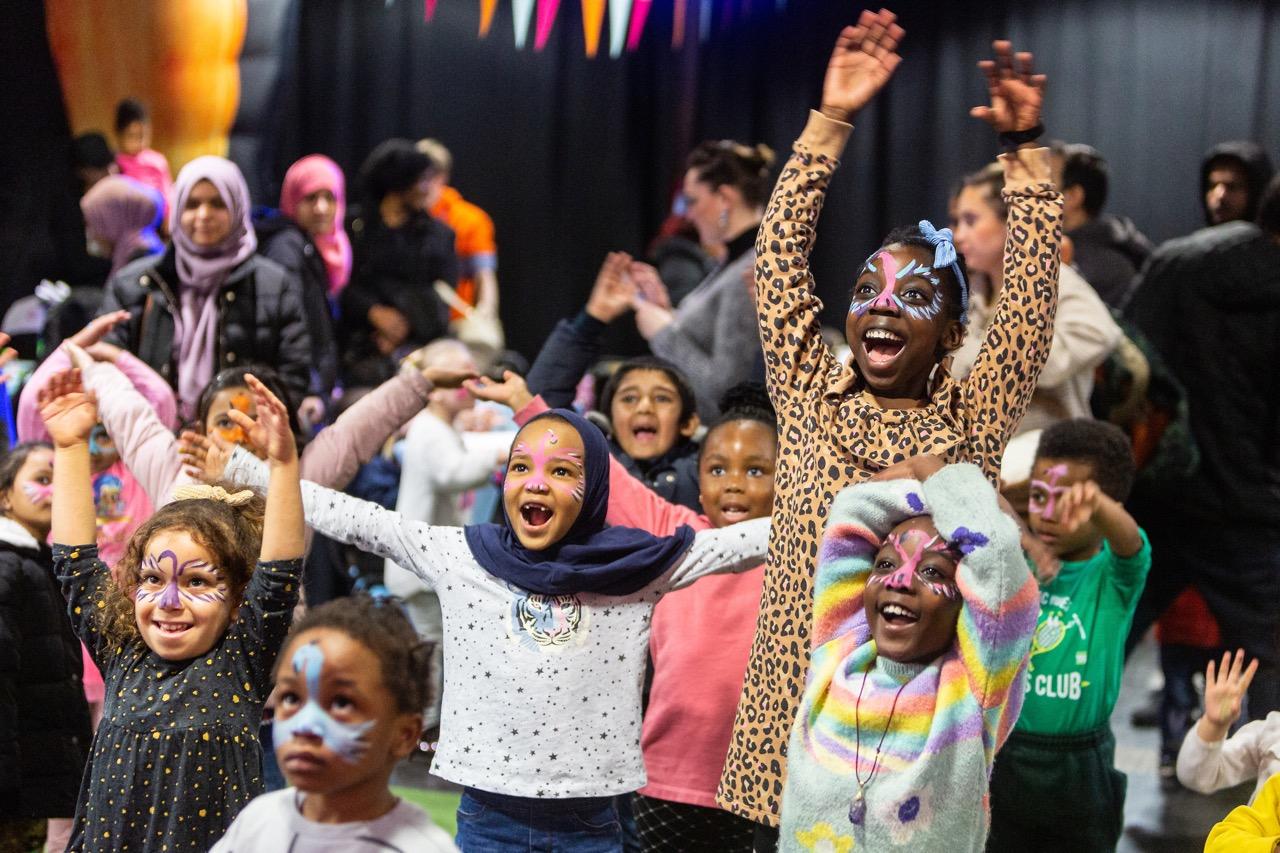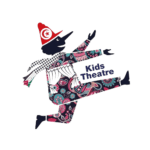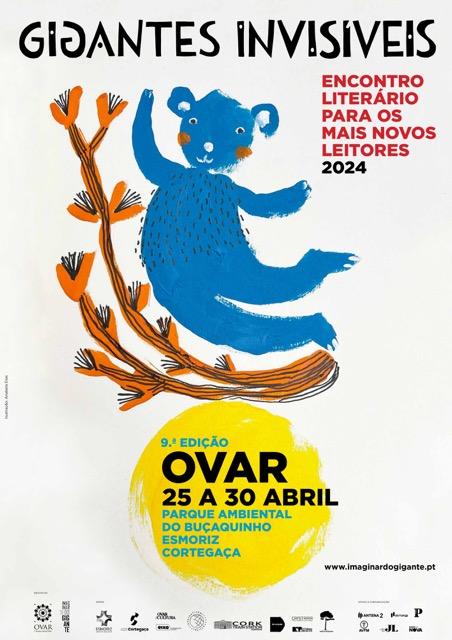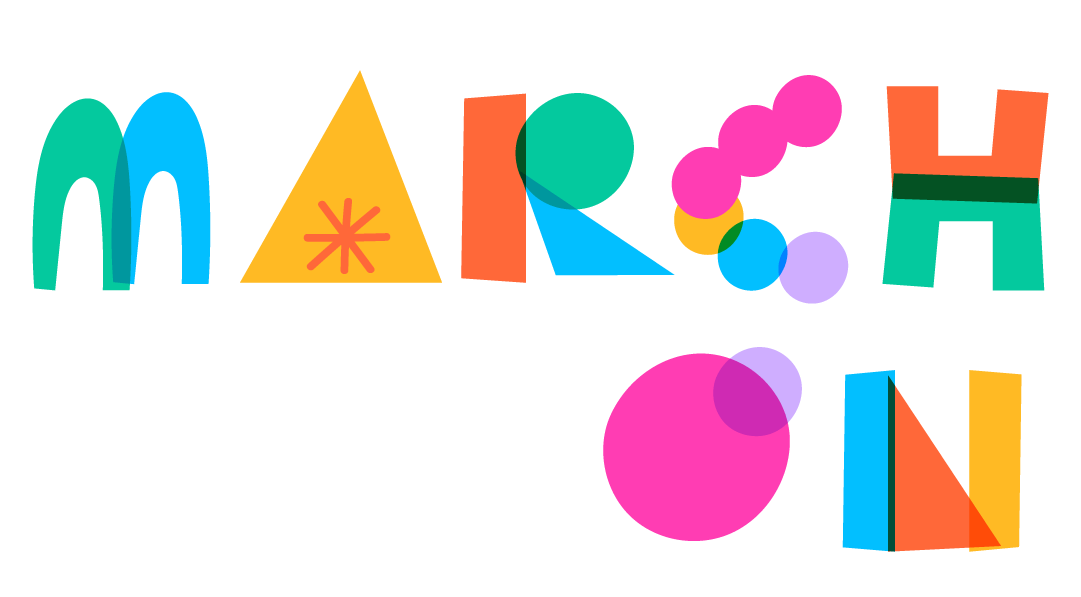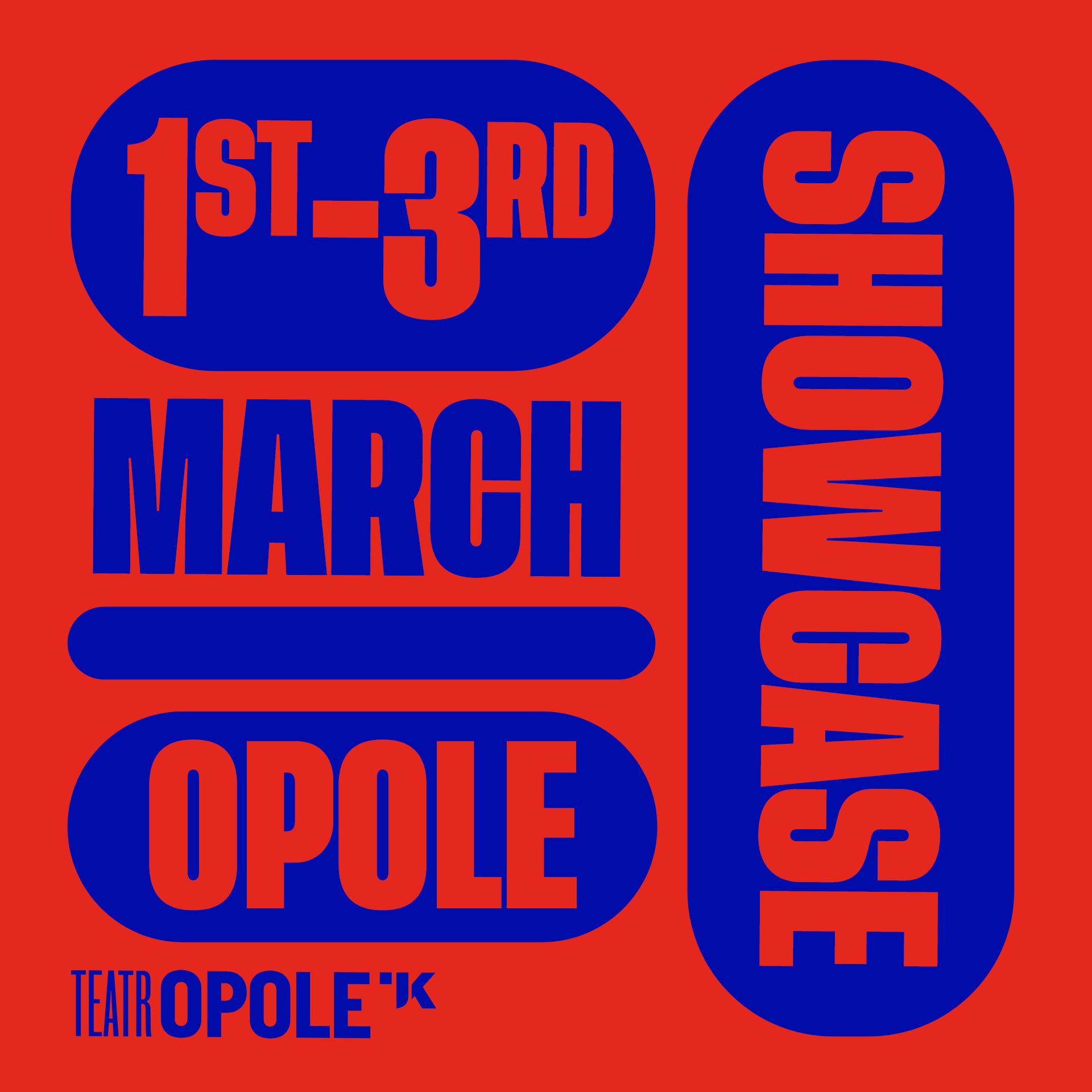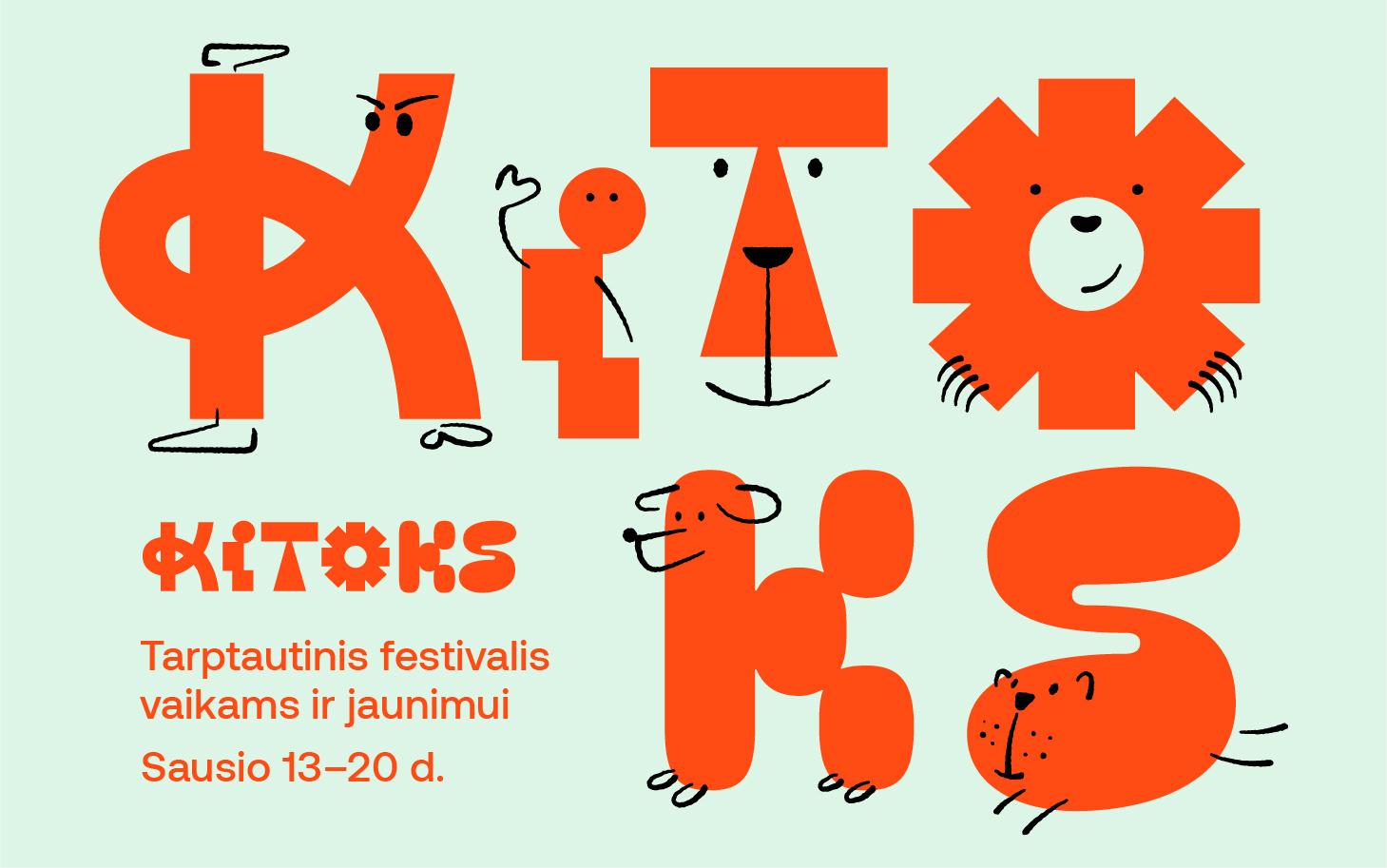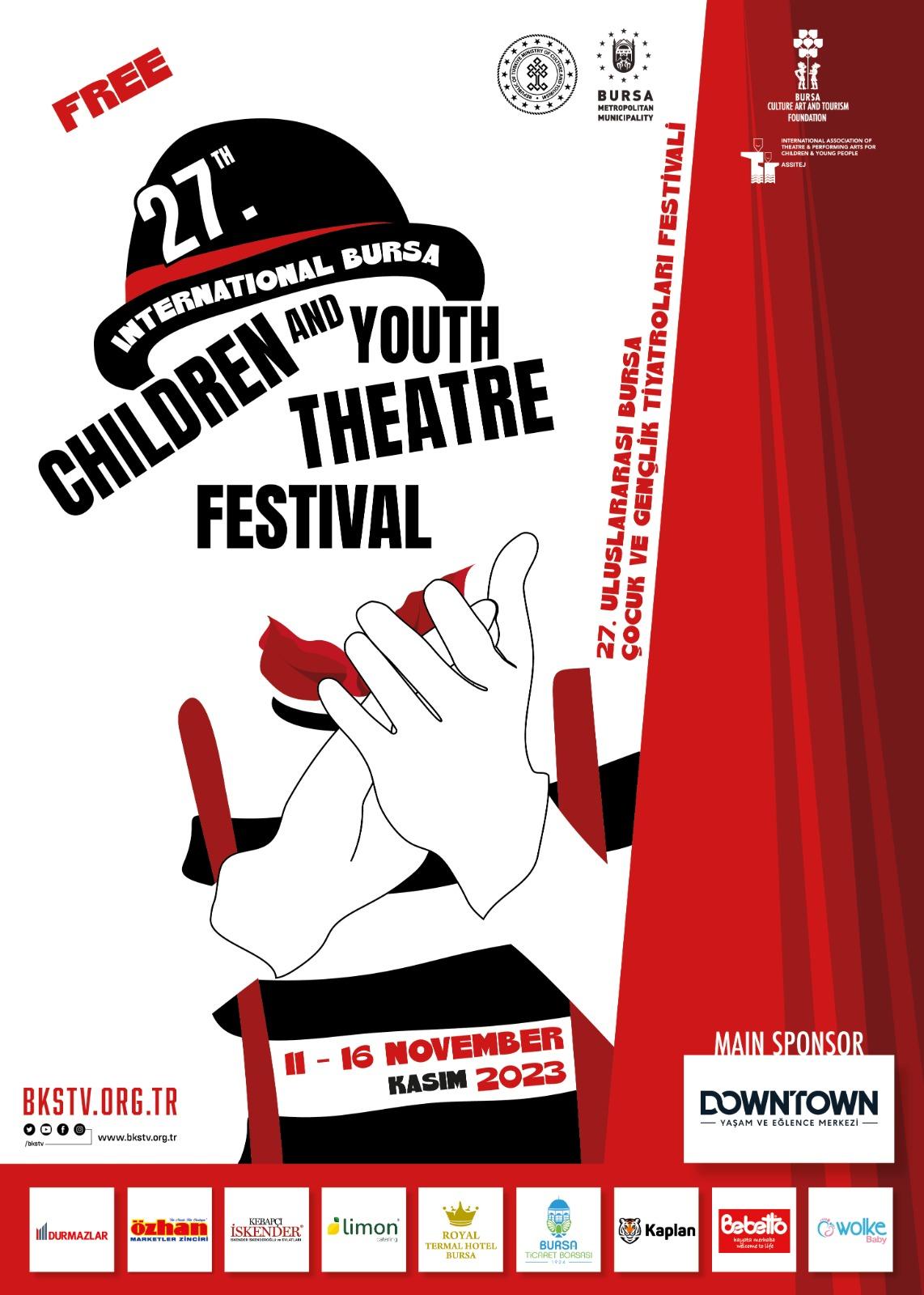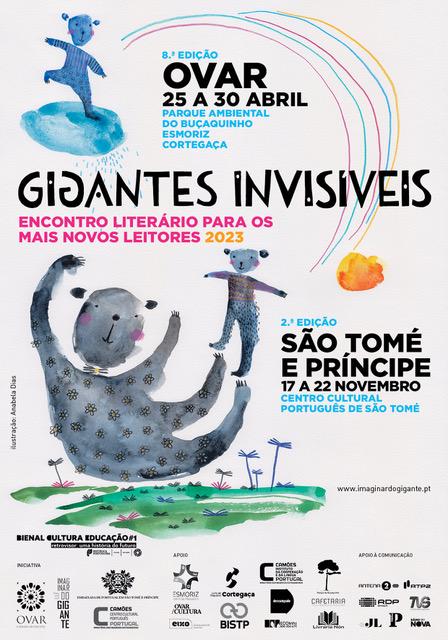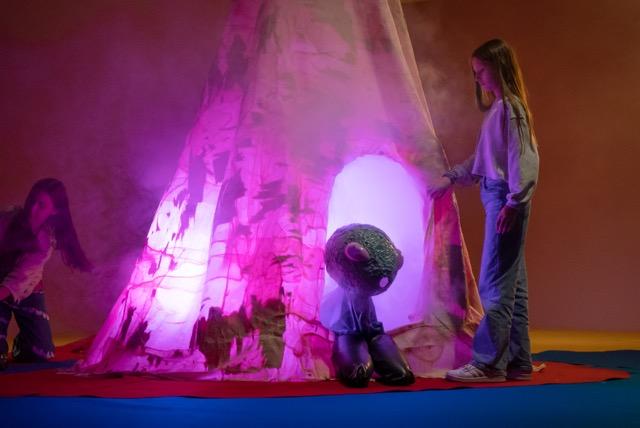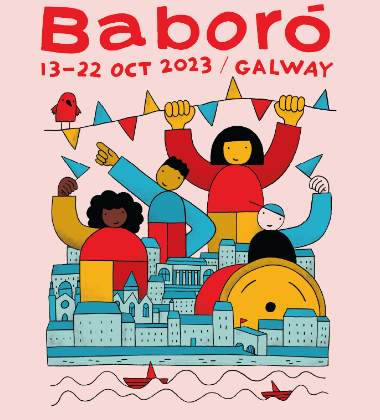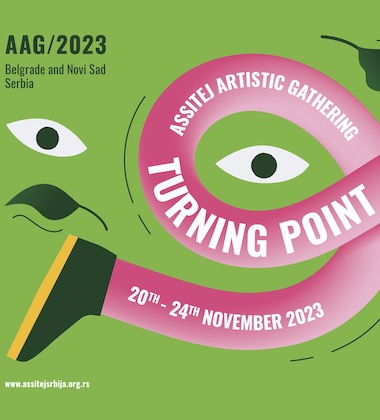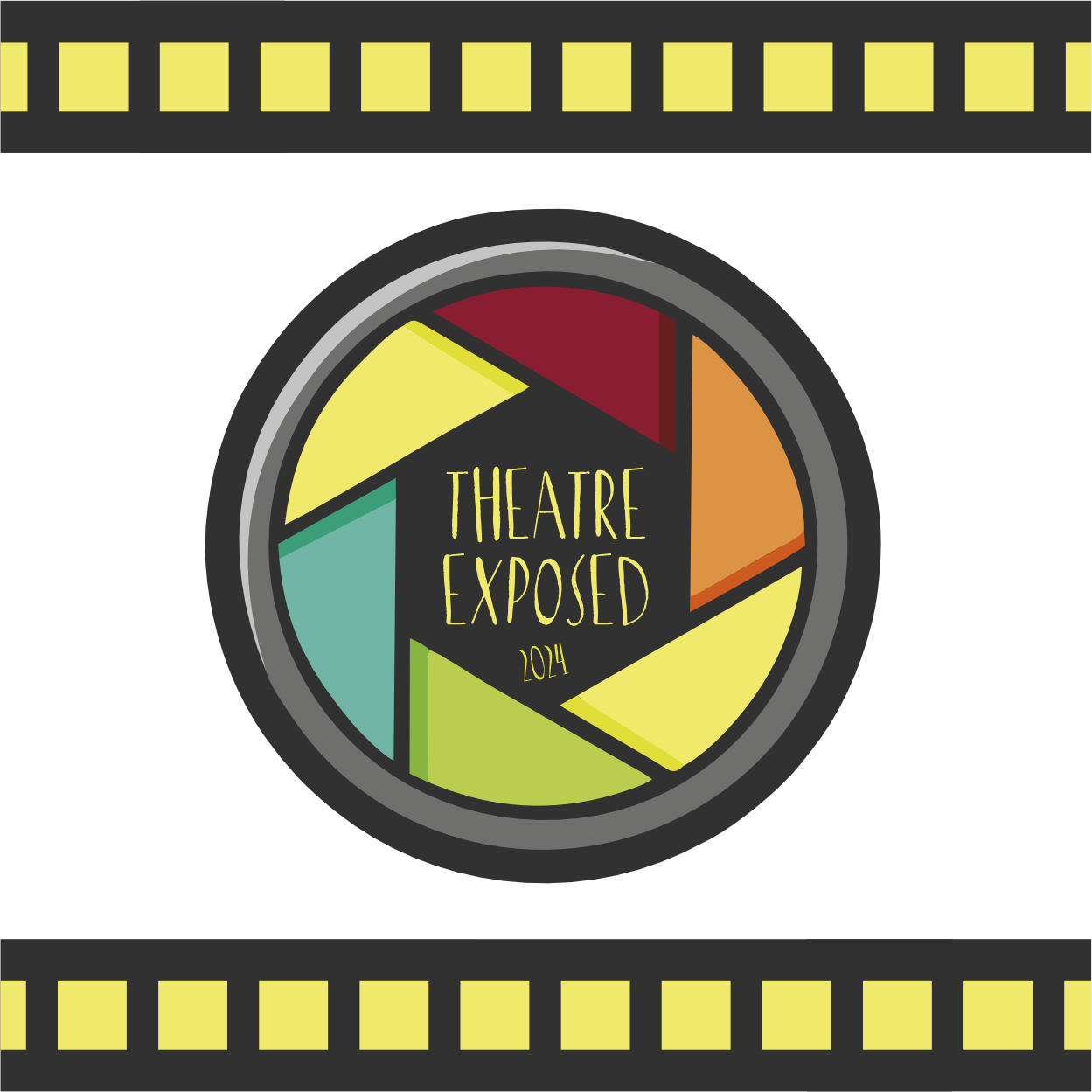ASSITEJ International unites theatres, organisations, and individuals throughout the world who make Theatre & Performing Arts for Children & Young People. ASSITEJ International is dedicated to the artistic, cultural, and educational rights of children and young people across the globe and advocates on behalf of all children regardless of nationality, cultural identity, ethnicity, or religion. ASSITEJ International brings people together so that they can share knowledge and practice within the field of Theatre & Performing Arts for Children & Young People in order to deepen understandings, develop practice, create new opportunities, and strengthen the global sector, on behalf of all children everywhere. The members of ASSITEJ International are National Centres, Professional Networks, and Affiliates.
Filter
All20th ASSITEJ World Congress & Performing Arts Festival / MIRAI 202050th AnniversaryAfrican Children and Youth Theatre Arena (ACYTA)AITA/IATAArchivesASSITEJ ActivitiesASSITEJ AngolaASSITEJ Argentina (ATINA)ASSITEJ ArmeniaASSITEJ Artistic Gathering 2016 (UK)ASSITEJ Artistic Gathering 2018 (China)ASSITEJ Artistic Gathering 2019 (Norway)ASSITEJ Artistic Gathering 2022 (Sweden)ASSITEJ Artistic Gathering 2023 (Serbia)ASSITEJ Artistic Gathering 2025 (France)ASSITEJ Artistic GatheringsASSITEJ Australia (Theatre Network Australia)ASSITEJ Austria (Junges Theater Österrreich)ASSITEJ AwardsASSITEJ AzerbaijanASSITEJ BelgiumASSITEJ Brazil (CBTIJ)ASSITEJ CameroonASSITEJ CanadaASSITEJ Chile (Te Veo)ASSITEJ ChinaASSITEJ Côte d'IvoireASSITEJ CroatiaASSITEJ CubaASSITEJ CyprusASSITEJ CzechiaASSITEJ DenmarkASSITEJ DramaturgyASSITEJ EstoniaASSITEJ Finland (Suomen Assitej)ASSITEJ France (Scènes d’enfance)ASSITEJ GeorgiaASSITEJ Germany (Das Netzwerk der Kinder- und Jugendtheater in Deutschland)ASSITEJ HaitiASSITEJ HungaryASSITEJ Ibero American NetworkASSITEJ IcelandASSITEJ IndiaASSITEJ InternationalASSITEJ IranASSITEJ Ireland (TYAI)ASSITEJ IsraelASSITEJ ItalyASSITEJ JapanASSITEJ JordanASSITEJ KenyaASSITEJ KoreaASSITEJ LatviaASSITEJ LebanonASSITEJ LiechtensteinASSITEJ LithuaniaASSITEJ LuxembourgASSITEJ MacedoniaASSITEJ MaltaASSITEJ MexicoASSITEJ MongoliaASSITEJ MozambiqueASSITEJ NamibiaASSITEJ National CentresASSITEJ NepalASSITEJ Netherlands (ASSITEJ NL)ASSITEJ New ZealandASSITEJ NigeriaASSITEJ NorwayASSITEJ PakistanASSITEJ PalestineASSITEJ PolandASSITEJ PortugalASSITEJ Professional NetworksASSITEJ Regional NetworksASSITEJ RomaniaASSITEJ RussiaASSITEJ RwandaASSITEJ SerbiaASSITEJ SingaporeASSITEJ SloveniaASSITEJ Small Countries NetworkASSITEJ South AfricaASSITEJ SpainASSITEJ Sri LankaASSITEJ SwedenASSITEJ SwitzerlandASSITEJ SyriaASSITEJ TurkeyASSITEJ UK (TYA UK)ASSITEJ UkraineASSITEJ UruguayASSITEJ USA (TYA/USA)ASSITEJ UzbekistanASSITEJ VietnamASSITEJ World Congress and Performing Arts Festival for Children & Young PeopleASSITEJ ZambiaASSITEJ ZimbaweCoffee SessionsCommitteesCurrent Open CallsDominican RepublicEgyptEuropean UnionEvent UpdatesEventsGeneral AssemblyGreeceIndonesiaInternationalInternational Inclusive Arts Network (IIAN)International Theatre for Young Audiences Research Network (ITYARN)Knowledge-Experiences-ReflectionsMagazineMalawiMoroccoNews By CountryNext Generation NetworkNext Generation ProgrammeNordic-Baltic NetworkOpportunitiesPartner OrganisationsProfessional ExchangeRegional WorkshopsResearchResidenciesSmall Size NetworkSpecial EventsSustainabilityThailandTunisiaUncategorisedUNESCOUNIMAUnited Arab EmiratesVoices of a New World: 21st ASSITEJ World Congress and Performing Arts Festival 2024 (Cuba)World DayWrite Local. Play Global. (WLPG)Young Dance Network
Filter
All20th ASSITEJ World Congress & Performing Arts Festival / MIRAI 202050th AnniversaryAfrican Children and Youth Theatre Arena (ACYTA)AITA/IATAArchivesASSITEJ ActivitiesASSITEJ AngolaASSITEJ Argentina (ATINA)ASSITEJ ArmeniaASSITEJ Artistic Gathering 2016 (UK)ASSITEJ Artistic Gathering 2018 (China)ASSITEJ Artistic Gathering 2019 (Norway)ASSITEJ Artistic Gathering 2022 (Sweden)ASSITEJ Artistic Gathering 2023 (Serbia)ASSITEJ Artistic Gathering 2025 (France)ASSITEJ Artistic GatheringsASSITEJ Australia (Theatre Network Australia)ASSITEJ Austria (Junges Theater Österrreich)ASSITEJ AwardsASSITEJ AzerbaijanASSITEJ BelgiumASSITEJ Brazil (CBTIJ)ASSITEJ CameroonASSITEJ CanadaASSITEJ Chile (Te Veo)ASSITEJ ChinaASSITEJ Côte d'IvoireASSITEJ CroatiaASSITEJ CubaASSITEJ CyprusASSITEJ CzechiaASSITEJ DenmarkASSITEJ DramaturgyASSITEJ EstoniaASSITEJ Finland (Suomen Assitej)ASSITEJ France (Scènes d’enfance)ASSITEJ GeorgiaASSITEJ Germany (Das Netzwerk der Kinder- und Jugendtheater in Deutschland)ASSITEJ HaitiASSITEJ HungaryASSITEJ Ibero American NetworkASSITEJ IcelandASSITEJ IndiaASSITEJ InternationalASSITEJ IranASSITEJ Ireland (TYAI)ASSITEJ IsraelASSITEJ ItalyASSITEJ JapanASSITEJ JordanASSITEJ KenyaASSITEJ KoreaASSITEJ LatviaASSITEJ LebanonASSITEJ LiechtensteinASSITEJ LithuaniaASSITEJ LuxembourgASSITEJ MacedoniaASSITEJ MaltaASSITEJ MexicoASSITEJ MongoliaASSITEJ MozambiqueASSITEJ NamibiaASSITEJ National CentresASSITEJ NepalASSITEJ Netherlands (ASSITEJ NL)ASSITEJ New ZealandASSITEJ NigeriaASSITEJ NorwayASSITEJ PakistanASSITEJ PalestineASSITEJ PolandASSITEJ PortugalASSITEJ Professional NetworksASSITEJ Regional NetworksASSITEJ RomaniaASSITEJ RussiaASSITEJ RwandaASSITEJ SerbiaASSITEJ SingaporeASSITEJ SloveniaASSITEJ Small Countries NetworkASSITEJ South AfricaASSITEJ SpainASSITEJ Sri LankaASSITEJ SwedenASSITEJ SwitzerlandASSITEJ SyriaASSITEJ TurkeyASSITEJ UK (TYA UK)ASSITEJ UkraineASSITEJ UruguayASSITEJ USA (TYA/USA)ASSITEJ UzbekistanASSITEJ VietnamASSITEJ World Congress and Performing Arts Festival for Children & Young PeopleASSITEJ ZambiaASSITEJ ZimbaweCoffee SessionsCommitteesCurrent Open CallsDominican RepublicEgyptEuropean UnionEvent UpdatesEventsGeneral AssemblyGreeceIndonesiaInternationalInternational Inclusive Arts Network (IIAN)International Theatre for Young Audiences Research Network (ITYARN)Knowledge-Experiences-ReflectionsMagazineMalawiMoroccoNews By CountryNext Generation NetworkNext Generation ProgrammeNordic-Baltic NetworkOpportunitiesPartner OrganisationsProfessional ExchangeRegional WorkshopsResearchResidenciesSmall Size NetworkSpecial EventsSustainabilityThailandTunisiaUncategorisedUNESCOUNIMAUnited Arab EmiratesVoices of a New World: 21st ASSITEJ World Congress and Performing Arts Festival 2024 (Cuba)World DayWrite Local. Play Global. (WLPG)Young Dance Network
Filter
All20th ASSITEJ World Congress & Performing Arts Festival / MIRAI 202050th AnniversaryAfrican Children and Youth Theatre Arena (ACYTA)AITA/IATAArchivesASSITEJ ActivitiesASSITEJ AngolaASSITEJ Argentina (ATINA)ASSITEJ ArmeniaASSITEJ Artistic Gathering 2016 (UK)ASSITEJ Artistic Gathering 2018 (China)ASSITEJ Artistic Gathering 2019 (Norway)ASSITEJ Artistic Gathering 2022 (Sweden)ASSITEJ Artistic Gathering 2023 (Serbia)ASSITEJ Artistic Gathering 2025 (France)ASSITEJ Artistic GatheringsASSITEJ Australia (Theatre Network Australia)ASSITEJ Austria (Junges Theater Österrreich)ASSITEJ AwardsASSITEJ AzerbaijanASSITEJ BelgiumASSITEJ Brazil (CBTIJ)ASSITEJ CameroonASSITEJ CanadaASSITEJ Chile (Te Veo)ASSITEJ ChinaASSITEJ Côte d'IvoireASSITEJ CroatiaASSITEJ CubaASSITEJ CyprusASSITEJ CzechiaASSITEJ DenmarkASSITEJ DramaturgyASSITEJ EstoniaASSITEJ Finland (Suomen Assitej)ASSITEJ France (Scènes d’enfance)ASSITEJ GeorgiaASSITEJ Germany (Das Netzwerk der Kinder- und Jugendtheater in Deutschland)ASSITEJ HaitiASSITEJ HungaryASSITEJ Ibero American NetworkASSITEJ IcelandASSITEJ IndiaASSITEJ InternationalASSITEJ IranASSITEJ Ireland (TYAI)ASSITEJ IsraelASSITEJ ItalyASSITEJ JapanASSITEJ JordanASSITEJ KenyaASSITEJ KoreaASSITEJ LatviaASSITEJ LebanonASSITEJ LiechtensteinASSITEJ LithuaniaASSITEJ LuxembourgASSITEJ MacedoniaASSITEJ MaltaASSITEJ MexicoASSITEJ MongoliaASSITEJ MozambiqueASSITEJ NamibiaASSITEJ National CentresASSITEJ NepalASSITEJ Netherlands (ASSITEJ NL)ASSITEJ New ZealandASSITEJ NigeriaASSITEJ NorwayASSITEJ PakistanASSITEJ PalestineASSITEJ PolandASSITEJ PortugalASSITEJ Professional NetworksASSITEJ Regional NetworksASSITEJ RomaniaASSITEJ RussiaASSITEJ RwandaASSITEJ SerbiaASSITEJ SingaporeASSITEJ SloveniaASSITEJ Small Countries NetworkASSITEJ South AfricaASSITEJ SpainASSITEJ Sri LankaASSITEJ SwedenASSITEJ SwitzerlandASSITEJ SyriaASSITEJ TurkeyASSITEJ UK (TYA UK)ASSITEJ UkraineASSITEJ UruguayASSITEJ USA (TYA/USA)ASSITEJ UzbekistanASSITEJ VietnamASSITEJ World Congress and Performing Arts Festival for Children & Young PeopleASSITEJ ZambiaASSITEJ ZimbaweCoffee SessionsCommitteesCurrent Open CallsDominican RepublicEgyptEuropean UnionEvent UpdatesEventsGeneral AssemblyGreeceIndonesiaInternationalInternational Inclusive Arts Network (IIAN)International Theatre for Young Audiences Research Network (ITYARN)Knowledge-Experiences-ReflectionsMagazineMalawiMoroccoNews By CountryNext Generation NetworkNext Generation ProgrammeNordic-Baltic NetworkOpportunitiesPartner OrganisationsProfessional ExchangeRegional WorkshopsResearchResidenciesSmall Size NetworkSpecial EventsSustainabilityThailandTunisiaUncategorisedUNESCOUNIMAUnited Arab EmiratesVoices of a New World: 21st ASSITEJ World Congress and Performing Arts Festival 2024 (Cuba)World DayWrite Local. Play Global. (WLPG)Young Dance Network
Filter
All20th ASSITEJ World Congress & Performing Arts Festival / MIRAI 202050th AnniversaryAfrican Children and Youth Theatre Arena (ACYTA)AITA/IATAArchivesASSITEJ ActivitiesASSITEJ AngolaASSITEJ Argentina (ATINA)ASSITEJ ArmeniaASSITEJ Artistic Gathering 2016 (UK)ASSITEJ Artistic Gathering 2018 (China)ASSITEJ Artistic Gathering 2019 (Norway)ASSITEJ Artistic Gathering 2022 (Sweden)ASSITEJ Artistic Gathering 2023 (Serbia)ASSITEJ Artistic Gathering 2025 (France)ASSITEJ Artistic GatheringsASSITEJ Australia (Theatre Network Australia)ASSITEJ Austria (Junges Theater Österrreich)ASSITEJ AwardsASSITEJ AzerbaijanASSITEJ BelgiumASSITEJ Brazil (CBTIJ)ASSITEJ CameroonASSITEJ CanadaASSITEJ Chile (Te Veo)ASSITEJ ChinaASSITEJ Côte d'IvoireASSITEJ CroatiaASSITEJ CubaASSITEJ CyprusASSITEJ CzechiaASSITEJ DenmarkASSITEJ DramaturgyASSITEJ EstoniaASSITEJ Finland (Suomen Assitej)ASSITEJ France (Scènes d’enfance)ASSITEJ GeorgiaASSITEJ Germany (Das Netzwerk der Kinder- und Jugendtheater in Deutschland)ASSITEJ HaitiASSITEJ HungaryASSITEJ Ibero American NetworkASSITEJ IcelandASSITEJ IndiaASSITEJ InternationalASSITEJ IranASSITEJ Ireland (TYAI)ASSITEJ IsraelASSITEJ ItalyASSITEJ JapanASSITEJ JordanASSITEJ KenyaASSITEJ KoreaASSITEJ LatviaASSITEJ LebanonASSITEJ LiechtensteinASSITEJ LithuaniaASSITEJ LuxembourgASSITEJ MacedoniaASSITEJ MaltaASSITEJ MexicoASSITEJ MongoliaASSITEJ MozambiqueASSITEJ NamibiaASSITEJ National CentresASSITEJ NepalASSITEJ Netherlands (ASSITEJ NL)ASSITEJ New ZealandASSITEJ NigeriaASSITEJ NorwayASSITEJ PakistanASSITEJ PalestineASSITEJ PolandASSITEJ PortugalASSITEJ Professional NetworksASSITEJ Regional NetworksASSITEJ RomaniaASSITEJ RussiaASSITEJ RwandaASSITEJ SerbiaASSITEJ SingaporeASSITEJ SloveniaASSITEJ Small Countries NetworkASSITEJ South AfricaASSITEJ SpainASSITEJ Sri LankaASSITEJ SwedenASSITEJ SwitzerlandASSITEJ SyriaASSITEJ TurkeyASSITEJ UK (TYA UK)ASSITEJ UkraineASSITEJ UruguayASSITEJ USA (TYA/USA)ASSITEJ UzbekistanASSITEJ VietnamASSITEJ World Congress and Performing Arts Festival for Children & Young PeopleASSITEJ ZambiaASSITEJ ZimbaweCoffee SessionsCommitteesCurrent Open CallsDominican RepublicEgyptEuropean UnionEvent UpdatesEventsGeneral AssemblyGreeceIndonesiaInternationalInternational Inclusive Arts Network (IIAN)International Theatre for Young Audiences Research Network (ITYARN)Knowledge-Experiences-ReflectionsMagazineMalawiMoroccoNews By CountryNext Generation NetworkNext Generation ProgrammeNordic-Baltic NetworkOpportunitiesPartner OrganisationsProfessional ExchangeRegional WorkshopsResearchResidenciesSmall Size NetworkSpecial EventsSustainabilityThailandTunisiaUncategorisedUNESCOUNIMAUnited Arab EmiratesVoices of a New World: 21st ASSITEJ World Congress and Performing Arts Festival 2024 (Cuba)World DayWrite Local. Play Global. (WLPG)Young Dance Network
Filter
All20th ASSITEJ World Congress & Performing Arts Festival / MIRAI 202050th AnniversaryAfrican Children and Youth Theatre Arena (ACYTA)AITA/IATAArchivesASSITEJ ActivitiesASSITEJ AngolaASSITEJ Argentina (ATINA)ASSITEJ ArmeniaASSITEJ Artistic Gathering 2016 (UK)ASSITEJ Artistic Gathering 2018 (China)ASSITEJ Artistic Gathering 2019 (Norway)ASSITEJ Artistic Gathering 2022 (Sweden)ASSITEJ Artistic Gathering 2023 (Serbia)ASSITEJ Artistic Gathering 2025 (France)ASSITEJ Artistic GatheringsASSITEJ Australia (Theatre Network Australia)ASSITEJ Austria (Junges Theater Österrreich)ASSITEJ AwardsASSITEJ AzerbaijanASSITEJ BelgiumASSITEJ Brazil (CBTIJ)ASSITEJ CameroonASSITEJ CanadaASSITEJ Chile (Te Veo)ASSITEJ ChinaASSITEJ Côte d'IvoireASSITEJ CroatiaASSITEJ CubaASSITEJ CyprusASSITEJ CzechiaASSITEJ DenmarkASSITEJ DramaturgyASSITEJ EstoniaASSITEJ Finland (Suomen Assitej)ASSITEJ France (Scènes d’enfance)ASSITEJ GeorgiaASSITEJ Germany (Das Netzwerk der Kinder- und Jugendtheater in Deutschland)ASSITEJ HaitiASSITEJ HungaryASSITEJ Ibero American NetworkASSITEJ IcelandASSITEJ IndiaASSITEJ InternationalASSITEJ IranASSITEJ Ireland (TYAI)ASSITEJ IsraelASSITEJ ItalyASSITEJ JapanASSITEJ JordanASSITEJ KenyaASSITEJ KoreaASSITEJ LatviaASSITEJ LebanonASSITEJ LiechtensteinASSITEJ LithuaniaASSITEJ LuxembourgASSITEJ MacedoniaASSITEJ MaltaASSITEJ MexicoASSITEJ MongoliaASSITEJ MozambiqueASSITEJ NamibiaASSITEJ National CentresASSITEJ NepalASSITEJ Netherlands (ASSITEJ NL)ASSITEJ New ZealandASSITEJ NigeriaASSITEJ NorwayASSITEJ PakistanASSITEJ PalestineASSITEJ PolandASSITEJ PortugalASSITEJ Professional NetworksASSITEJ Regional NetworksASSITEJ RomaniaASSITEJ RussiaASSITEJ RwandaASSITEJ SerbiaASSITEJ SingaporeASSITEJ SloveniaASSITEJ Small Countries NetworkASSITEJ South AfricaASSITEJ SpainASSITEJ Sri LankaASSITEJ SwedenASSITEJ SwitzerlandASSITEJ SyriaASSITEJ TurkeyASSITEJ UK (TYA UK)ASSITEJ UkraineASSITEJ UruguayASSITEJ USA (TYA/USA)ASSITEJ UzbekistanASSITEJ VietnamASSITEJ World Congress and Performing Arts Festival for Children & Young PeopleASSITEJ ZambiaASSITEJ ZimbaweCoffee SessionsCommitteesCurrent Open CallsDominican RepublicEgyptEuropean UnionEvent UpdatesEventsGeneral AssemblyGreeceIndonesiaInternationalInternational Inclusive Arts Network (IIAN)International Theatre for Young Audiences Research Network (ITYARN)Knowledge-Experiences-ReflectionsMagazineMalawiMoroccoNews By CountryNext Generation NetworkNext Generation ProgrammeNordic-Baltic NetworkOpportunitiesPartner OrganisationsProfessional ExchangeRegional WorkshopsResearchResidenciesSmall Size NetworkSpecial EventsSustainabilityThailandTunisiaUncategorisedUNESCOUNIMAUnited Arab EmiratesVoices of a New World: 21st ASSITEJ World Congress and Performing Arts Festival 2024 (Cuba)World DayWrite Local. Play Global. (WLPG)Young Dance Network
Filter
All20th ASSITEJ World Congress & Performing Arts Festival / MIRAI 202050th AnniversaryAfrican Children and Youth Theatre Arena (ACYTA)AITA/IATAArchivesASSITEJ ActivitiesASSITEJ AngolaASSITEJ Argentina (ATINA)ASSITEJ ArmeniaASSITEJ Artistic Gathering 2016 (UK)ASSITEJ Artistic Gathering 2018 (China)ASSITEJ Artistic Gathering 2019 (Norway)ASSITEJ Artistic Gathering 2022 (Sweden)ASSITEJ Artistic Gathering 2023 (Serbia)ASSITEJ Artistic Gathering 2025 (France)ASSITEJ Artistic GatheringsASSITEJ Australia (Theatre Network Australia)ASSITEJ Austria (Junges Theater Österrreich)ASSITEJ AwardsASSITEJ AzerbaijanASSITEJ BelgiumASSITEJ Brazil (CBTIJ)ASSITEJ CameroonASSITEJ CanadaASSITEJ Chile (Te Veo)ASSITEJ ChinaASSITEJ Côte d'IvoireASSITEJ CroatiaASSITEJ CubaASSITEJ CyprusASSITEJ CzechiaASSITEJ DenmarkASSITEJ DramaturgyASSITEJ EstoniaASSITEJ Finland (Suomen Assitej)ASSITEJ France (Scènes d’enfance)ASSITEJ GeorgiaASSITEJ Germany (Das Netzwerk der Kinder- und Jugendtheater in Deutschland)ASSITEJ HaitiASSITEJ HungaryASSITEJ Ibero American NetworkASSITEJ IcelandASSITEJ IndiaASSITEJ InternationalASSITEJ IranASSITEJ Ireland (TYAI)ASSITEJ IsraelASSITEJ ItalyASSITEJ JapanASSITEJ JordanASSITEJ KenyaASSITEJ KoreaASSITEJ LatviaASSITEJ LebanonASSITEJ LiechtensteinASSITEJ LithuaniaASSITEJ LuxembourgASSITEJ MacedoniaASSITEJ MaltaASSITEJ MexicoASSITEJ MongoliaASSITEJ MozambiqueASSITEJ NamibiaASSITEJ National CentresASSITEJ NepalASSITEJ Netherlands (ASSITEJ NL)ASSITEJ New ZealandASSITEJ NigeriaASSITEJ NorwayASSITEJ PakistanASSITEJ PalestineASSITEJ PolandASSITEJ PortugalASSITEJ Professional NetworksASSITEJ Regional NetworksASSITEJ RomaniaASSITEJ RussiaASSITEJ RwandaASSITEJ SerbiaASSITEJ SingaporeASSITEJ SloveniaASSITEJ Small Countries NetworkASSITEJ South AfricaASSITEJ SpainASSITEJ Sri LankaASSITEJ SwedenASSITEJ SwitzerlandASSITEJ SyriaASSITEJ TurkeyASSITEJ UK (TYA UK)ASSITEJ UkraineASSITEJ UruguayASSITEJ USA (TYA/USA)ASSITEJ UzbekistanASSITEJ VietnamASSITEJ World Congress and Performing Arts Festival for Children & Young PeopleASSITEJ ZambiaASSITEJ ZimbaweCoffee SessionsCommitteesCurrent Open CallsDominican RepublicEgyptEuropean UnionEvent UpdatesEventsGeneral AssemblyGreeceIndonesiaInternationalInternational Inclusive Arts Network (IIAN)International Theatre for Young Audiences Research Network (ITYARN)Knowledge-Experiences-ReflectionsMagazineMalawiMoroccoNews By CountryNext Generation NetworkNext Generation ProgrammeNordic-Baltic NetworkOpportunitiesPartner OrganisationsProfessional ExchangeRegional WorkshopsResearchResidenciesSmall Size NetworkSpecial EventsSustainabilityThailandTunisiaUncategorisedUNESCOUNIMAUnited Arab EmiratesVoices of a New World: 21st ASSITEJ World Congress and Performing Arts Festival 2024 (Cuba)World DayWrite Local. Play Global. (WLPG)Young Dance Network
Filter
All20th ASSITEJ World Congress & Performing Arts Festival / MIRAI 202050th AnniversaryAfrican Children and Youth Theatre Arena (ACYTA)AITA/IATAArchivesASSITEJ ActivitiesASSITEJ AngolaASSITEJ Argentina (ATINA)ASSITEJ ArmeniaASSITEJ Artistic Gathering 2016 (UK)ASSITEJ Artistic Gathering 2018 (China)ASSITEJ Artistic Gathering 2019 (Norway)ASSITEJ Artistic Gathering 2022 (Sweden)ASSITEJ Artistic Gathering 2023 (Serbia)ASSITEJ Artistic Gathering 2025 (France)ASSITEJ Artistic GatheringsASSITEJ Australia (Theatre Network Australia)ASSITEJ Austria (Junges Theater Österrreich)ASSITEJ AwardsASSITEJ AzerbaijanASSITEJ BelgiumASSITEJ Brazil (CBTIJ)ASSITEJ CameroonASSITEJ CanadaASSITEJ Chile (Te Veo)ASSITEJ ChinaASSITEJ Côte d'IvoireASSITEJ CroatiaASSITEJ CubaASSITEJ CyprusASSITEJ CzechiaASSITEJ DenmarkASSITEJ DramaturgyASSITEJ EstoniaASSITEJ Finland (Suomen Assitej)ASSITEJ France (Scènes d’enfance)ASSITEJ GeorgiaASSITEJ Germany (Das Netzwerk der Kinder- und Jugendtheater in Deutschland)ASSITEJ HaitiASSITEJ HungaryASSITEJ Ibero American NetworkASSITEJ IcelandASSITEJ IndiaASSITEJ InternationalASSITEJ IranASSITEJ Ireland (TYAI)ASSITEJ IsraelASSITEJ ItalyASSITEJ JapanASSITEJ JordanASSITEJ KenyaASSITEJ KoreaASSITEJ LatviaASSITEJ LebanonASSITEJ LiechtensteinASSITEJ LithuaniaASSITEJ LuxembourgASSITEJ MacedoniaASSITEJ MaltaASSITEJ MexicoASSITEJ MongoliaASSITEJ MozambiqueASSITEJ NamibiaASSITEJ National CentresASSITEJ NepalASSITEJ Netherlands (ASSITEJ NL)ASSITEJ New ZealandASSITEJ NigeriaASSITEJ NorwayASSITEJ PakistanASSITEJ PalestineASSITEJ PolandASSITEJ PortugalASSITEJ Professional NetworksASSITEJ Regional NetworksASSITEJ RomaniaASSITEJ RussiaASSITEJ RwandaASSITEJ SerbiaASSITEJ SingaporeASSITEJ SloveniaASSITEJ Small Countries NetworkASSITEJ South AfricaASSITEJ SpainASSITEJ Sri LankaASSITEJ SwedenASSITEJ SwitzerlandASSITEJ SyriaASSITEJ TurkeyASSITEJ UK (TYA UK)ASSITEJ UkraineASSITEJ UruguayASSITEJ USA (TYA/USA)ASSITEJ UzbekistanASSITEJ VietnamASSITEJ World Congress and Performing Arts Festival for Children & Young PeopleASSITEJ ZambiaASSITEJ ZimbaweCoffee SessionsCommitteesCurrent Open CallsDominican RepublicEgyptEuropean UnionEvent UpdatesEventsGeneral AssemblyGreeceIndonesiaInternationalInternational Inclusive Arts Network (IIAN)International Theatre for Young Audiences Research Network (ITYARN)Knowledge-Experiences-ReflectionsMagazineMalawiMoroccoNews By CountryNext Generation NetworkNext Generation ProgrammeNordic-Baltic NetworkOpportunitiesPartner OrganisationsProfessional ExchangeRegional WorkshopsResearchResidenciesSmall Size NetworkSpecial EventsSustainabilityThailandTunisiaUncategorisedUNESCOUNIMAUnited Arab EmiratesVoices of a New World: 21st ASSITEJ World Congress and Performing Arts Festival 2024 (Cuba)World DayWrite Local. Play Global. (WLPG)Young Dance Network
Filter
All20th ASSITEJ World Congress & Performing Arts Festival / MIRAI 202050th AnniversaryAfrican Children and Youth Theatre Arena (ACYTA)AITA/IATAArchivesASSITEJ ActivitiesASSITEJ AngolaASSITEJ Argentina (ATINA)ASSITEJ ArmeniaASSITEJ Artistic Gathering 2016 (UK)ASSITEJ Artistic Gathering 2018 (China)ASSITEJ Artistic Gathering 2019 (Norway)ASSITEJ Artistic Gathering 2022 (Sweden)ASSITEJ Artistic Gathering 2023 (Serbia)ASSITEJ Artistic Gathering 2025 (France)ASSITEJ Artistic GatheringsASSITEJ Australia (Theatre Network Australia)ASSITEJ Austria (Junges Theater Österrreich)ASSITEJ AwardsASSITEJ AzerbaijanASSITEJ BelgiumASSITEJ Brazil (CBTIJ)ASSITEJ CameroonASSITEJ CanadaASSITEJ Chile (Te Veo)ASSITEJ ChinaASSITEJ Côte d'IvoireASSITEJ CroatiaASSITEJ CubaASSITEJ CyprusASSITEJ CzechiaASSITEJ DenmarkASSITEJ DramaturgyASSITEJ EstoniaASSITEJ Finland (Suomen Assitej)ASSITEJ France (Scènes d’enfance)ASSITEJ GeorgiaASSITEJ Germany (Das Netzwerk der Kinder- und Jugendtheater in Deutschland)ASSITEJ HaitiASSITEJ HungaryASSITEJ Ibero American NetworkASSITEJ IcelandASSITEJ IndiaASSITEJ InternationalASSITEJ IranASSITEJ Ireland (TYAI)ASSITEJ IsraelASSITEJ ItalyASSITEJ JapanASSITEJ JordanASSITEJ KenyaASSITEJ KoreaASSITEJ LatviaASSITEJ LebanonASSITEJ LiechtensteinASSITEJ LithuaniaASSITEJ LuxembourgASSITEJ MacedoniaASSITEJ MaltaASSITEJ MexicoASSITEJ MongoliaASSITEJ MozambiqueASSITEJ NamibiaASSITEJ National CentresASSITEJ NepalASSITEJ Netherlands (ASSITEJ NL)ASSITEJ New ZealandASSITEJ NigeriaASSITEJ NorwayASSITEJ PakistanASSITEJ PalestineASSITEJ PolandASSITEJ PortugalASSITEJ Professional NetworksASSITEJ Regional NetworksASSITEJ RomaniaASSITEJ RussiaASSITEJ RwandaASSITEJ SerbiaASSITEJ SingaporeASSITEJ SloveniaASSITEJ Small Countries NetworkASSITEJ South AfricaASSITEJ SpainASSITEJ Sri LankaASSITEJ SwedenASSITEJ SwitzerlandASSITEJ SyriaASSITEJ TurkeyASSITEJ UK (TYA UK)ASSITEJ UkraineASSITEJ UruguayASSITEJ USA (TYA/USA)ASSITEJ UzbekistanASSITEJ VietnamASSITEJ World Congress and Performing Arts Festival for Children & Young PeopleASSITEJ ZambiaASSITEJ ZimbaweCoffee SessionsCommitteesCurrent Open CallsDominican RepublicEgyptEuropean UnionEvent UpdatesEventsGeneral AssemblyGreeceIndonesiaInternationalInternational Inclusive Arts Network (IIAN)International Theatre for Young Audiences Research Network (ITYARN)Knowledge-Experiences-ReflectionsMagazineMalawiMoroccoNews By CountryNext Generation NetworkNext Generation ProgrammeNordic-Baltic NetworkOpportunitiesPartner OrganisationsProfessional ExchangeRegional WorkshopsResearchResidenciesSmall Size NetworkSpecial EventsSustainabilityThailandTunisiaUncategorisedUNESCOUNIMAUnited Arab EmiratesVoices of a New World: 21st ASSITEJ World Congress and Performing Arts Festival 2024 (Cuba)World DayWrite Local. Play Global. (WLPG)Young Dance Network
Filter
All20th ASSITEJ World Congress & Performing Arts Festival / MIRAI 202050th AnniversaryAfrican Children and Youth Theatre Arena (ACYTA)AITA/IATAArchivesASSITEJ ActivitiesASSITEJ AngolaASSITEJ Argentina (ATINA)ASSITEJ ArmeniaASSITEJ Artistic Gathering 2016 (UK)ASSITEJ Artistic Gathering 2018 (China)ASSITEJ Artistic Gathering 2019 (Norway)ASSITEJ Artistic Gathering 2022 (Sweden)ASSITEJ Artistic Gathering 2023 (Serbia)ASSITEJ Artistic Gathering 2025 (France)ASSITEJ Artistic GatheringsASSITEJ Australia (Theatre Network Australia)ASSITEJ Austria (Junges Theater Österrreich)ASSITEJ AwardsASSITEJ AzerbaijanASSITEJ BelgiumASSITEJ Brazil (CBTIJ)ASSITEJ CameroonASSITEJ CanadaASSITEJ Chile (Te Veo)ASSITEJ ChinaASSITEJ Côte d'IvoireASSITEJ CroatiaASSITEJ CubaASSITEJ CyprusASSITEJ CzechiaASSITEJ DenmarkASSITEJ DramaturgyASSITEJ EstoniaASSITEJ Finland (Suomen Assitej)ASSITEJ France (Scènes d’enfance)ASSITEJ GeorgiaASSITEJ Germany (Das Netzwerk der Kinder- und Jugendtheater in Deutschland)ASSITEJ HaitiASSITEJ HungaryASSITEJ Ibero American NetworkASSITEJ IcelandASSITEJ IndiaASSITEJ InternationalASSITEJ IranASSITEJ Ireland (TYAI)ASSITEJ IsraelASSITEJ ItalyASSITEJ JapanASSITEJ JordanASSITEJ KenyaASSITEJ KoreaASSITEJ LatviaASSITEJ LebanonASSITEJ LiechtensteinASSITEJ LithuaniaASSITEJ LuxembourgASSITEJ MacedoniaASSITEJ MaltaASSITEJ MexicoASSITEJ MongoliaASSITEJ MozambiqueASSITEJ NamibiaASSITEJ National CentresASSITEJ NepalASSITEJ Netherlands (ASSITEJ NL)ASSITEJ New ZealandASSITEJ NigeriaASSITEJ NorwayASSITEJ PakistanASSITEJ PalestineASSITEJ PolandASSITEJ PortugalASSITEJ Professional NetworksASSITEJ Regional NetworksASSITEJ RomaniaASSITEJ RussiaASSITEJ RwandaASSITEJ SerbiaASSITEJ SingaporeASSITEJ SloveniaASSITEJ Small Countries NetworkASSITEJ South AfricaASSITEJ SpainASSITEJ Sri LankaASSITEJ SwedenASSITEJ SwitzerlandASSITEJ SyriaASSITEJ TurkeyASSITEJ UK (TYA UK)ASSITEJ UkraineASSITEJ UruguayASSITEJ USA (TYA/USA)ASSITEJ UzbekistanASSITEJ VietnamASSITEJ World Congress and Performing Arts Festival for Children & Young PeopleASSITEJ ZambiaASSITEJ ZimbaweCoffee SessionsCommitteesCurrent Open CallsDominican RepublicEgyptEuropean UnionEvent UpdatesEventsGeneral AssemblyGreeceIndonesiaInternationalInternational Inclusive Arts Network (IIAN)International Theatre for Young Audiences Research Network (ITYARN)Knowledge-Experiences-ReflectionsMagazineMalawiMoroccoNews By CountryNext Generation NetworkNext Generation ProgrammeNordic-Baltic NetworkOpportunitiesPartner OrganisationsProfessional ExchangeRegional WorkshopsResearchResidenciesSmall Size NetworkSpecial EventsSustainabilityThailandTunisiaUncategorisedUNESCOUNIMAUnited Arab EmiratesVoices of a New World: 21st ASSITEJ World Congress and Performing Arts Festival 2024 (Cuba)World DayWrite Local. Play Global. (WLPG)Young Dance Network
Filter
All20th ASSITEJ World Congress & Performing Arts Festival / MIRAI 202050th AnniversaryAfrican Children and Youth Theatre Arena (ACYTA)AITA/IATAArchivesASSITEJ ActivitiesASSITEJ AngolaASSITEJ Argentina (ATINA)ASSITEJ ArmeniaASSITEJ Artistic Gathering 2016 (UK)ASSITEJ Artistic Gathering 2018 (China)ASSITEJ Artistic Gathering 2019 (Norway)ASSITEJ Artistic Gathering 2022 (Sweden)ASSITEJ Artistic Gathering 2023 (Serbia)ASSITEJ Artistic Gathering 2025 (France)ASSITEJ Artistic GatheringsASSITEJ Australia (Theatre Network Australia)ASSITEJ Austria (Junges Theater Österrreich)ASSITEJ AwardsASSITEJ AzerbaijanASSITEJ BelgiumASSITEJ Brazil (CBTIJ)ASSITEJ CameroonASSITEJ CanadaASSITEJ Chile (Te Veo)ASSITEJ ChinaASSITEJ Côte d'IvoireASSITEJ CroatiaASSITEJ CubaASSITEJ CyprusASSITEJ CzechiaASSITEJ DenmarkASSITEJ DramaturgyASSITEJ EstoniaASSITEJ Finland (Suomen Assitej)ASSITEJ France (Scènes d’enfance)ASSITEJ GeorgiaASSITEJ Germany (Das Netzwerk der Kinder- und Jugendtheater in Deutschland)ASSITEJ HaitiASSITEJ HungaryASSITEJ Ibero American NetworkASSITEJ IcelandASSITEJ IndiaASSITEJ InternationalASSITEJ IranASSITEJ Ireland (TYAI)ASSITEJ IsraelASSITEJ ItalyASSITEJ JapanASSITEJ JordanASSITEJ KenyaASSITEJ KoreaASSITEJ LatviaASSITEJ LebanonASSITEJ LiechtensteinASSITEJ LithuaniaASSITEJ LuxembourgASSITEJ MacedoniaASSITEJ MaltaASSITEJ MexicoASSITEJ MongoliaASSITEJ MozambiqueASSITEJ NamibiaASSITEJ National CentresASSITEJ NepalASSITEJ Netherlands (ASSITEJ NL)ASSITEJ New ZealandASSITEJ NigeriaASSITEJ NorwayASSITEJ PakistanASSITEJ PalestineASSITEJ PolandASSITEJ PortugalASSITEJ Professional NetworksASSITEJ Regional NetworksASSITEJ RomaniaASSITEJ RussiaASSITEJ RwandaASSITEJ SerbiaASSITEJ SingaporeASSITEJ SloveniaASSITEJ Small Countries NetworkASSITEJ South AfricaASSITEJ SpainASSITEJ Sri LankaASSITEJ SwedenASSITEJ SwitzerlandASSITEJ SyriaASSITEJ TurkeyASSITEJ UK (TYA UK)ASSITEJ UkraineASSITEJ UruguayASSITEJ USA (TYA/USA)ASSITEJ UzbekistanASSITEJ VietnamASSITEJ World Congress and Performing Arts Festival for Children & Young PeopleASSITEJ ZambiaASSITEJ ZimbaweCoffee SessionsCommitteesCurrent Open CallsDominican RepublicEgyptEuropean UnionEvent UpdatesEventsGeneral AssemblyGreeceIndonesiaInternationalInternational Inclusive Arts Network (IIAN)International Theatre for Young Audiences Research Network (ITYARN)Knowledge-Experiences-ReflectionsMagazineMalawiMoroccoNews By CountryNext Generation NetworkNext Generation ProgrammeNordic-Baltic NetworkOpportunitiesPartner OrganisationsProfessional ExchangeRegional WorkshopsResearchResidenciesSmall Size NetworkSpecial EventsSustainabilityThailandTunisiaUncategorisedUNESCOUNIMAUnited Arab EmiratesVoices of a New World: 21st ASSITEJ World Congress and Performing Arts Festival 2024 (Cuba)World DayWrite Local. Play Global. (WLPG)Young Dance Network
Filter
All20th ASSITEJ World Congress & Performing Arts Festival / MIRAI 202050th AnniversaryAfrican Children and Youth Theatre Arena (ACYTA)AITA/IATAArchivesASSITEJ ActivitiesASSITEJ AngolaASSITEJ Argentina (ATINA)ASSITEJ ArmeniaASSITEJ Artistic Gathering 2016 (UK)ASSITEJ Artistic Gathering 2018 (China)ASSITEJ Artistic Gathering 2019 (Norway)ASSITEJ Artistic Gathering 2022 (Sweden)ASSITEJ Artistic Gathering 2023 (Serbia)ASSITEJ Artistic Gathering 2025 (France)ASSITEJ Artistic GatheringsASSITEJ Australia (Theatre Network Australia)ASSITEJ Austria (Junges Theater Österrreich)ASSITEJ AwardsASSITEJ AzerbaijanASSITEJ BelgiumASSITEJ Brazil (CBTIJ)ASSITEJ CameroonASSITEJ CanadaASSITEJ Chile (Te Veo)ASSITEJ ChinaASSITEJ Côte d'IvoireASSITEJ CroatiaASSITEJ CubaASSITEJ CyprusASSITEJ CzechiaASSITEJ DenmarkASSITEJ DramaturgyASSITEJ EstoniaASSITEJ Finland (Suomen Assitej)ASSITEJ France (Scènes d’enfance)ASSITEJ GeorgiaASSITEJ Germany (Das Netzwerk der Kinder- und Jugendtheater in Deutschland)ASSITEJ HaitiASSITEJ HungaryASSITEJ Ibero American NetworkASSITEJ IcelandASSITEJ IndiaASSITEJ InternationalASSITEJ IranASSITEJ Ireland (TYAI)ASSITEJ IsraelASSITEJ ItalyASSITEJ JapanASSITEJ JordanASSITEJ KenyaASSITEJ KoreaASSITEJ LatviaASSITEJ LebanonASSITEJ LiechtensteinASSITEJ LithuaniaASSITEJ LuxembourgASSITEJ MacedoniaASSITEJ MaltaASSITEJ MexicoASSITEJ MongoliaASSITEJ MozambiqueASSITEJ NamibiaASSITEJ National CentresASSITEJ NepalASSITEJ Netherlands (ASSITEJ NL)ASSITEJ New ZealandASSITEJ NigeriaASSITEJ NorwayASSITEJ PakistanASSITEJ PalestineASSITEJ PolandASSITEJ PortugalASSITEJ Professional NetworksASSITEJ Regional NetworksASSITEJ RomaniaASSITEJ RussiaASSITEJ RwandaASSITEJ SerbiaASSITEJ SingaporeASSITEJ SloveniaASSITEJ Small Countries NetworkASSITEJ South AfricaASSITEJ SpainASSITEJ Sri LankaASSITEJ SwedenASSITEJ SwitzerlandASSITEJ SyriaASSITEJ TurkeyASSITEJ UK (TYA UK)ASSITEJ UkraineASSITEJ UruguayASSITEJ USA (TYA/USA)ASSITEJ UzbekistanASSITEJ VietnamASSITEJ World Congress and Performing Arts Festival for Children & Young PeopleASSITEJ ZambiaASSITEJ ZimbaweCoffee SessionsCommitteesCurrent Open CallsDominican RepublicEgyptEuropean UnionEvent UpdatesEventsGeneral AssemblyGreeceIndonesiaInternationalInternational Inclusive Arts Network (IIAN)International Theatre for Young Audiences Research Network (ITYARN)Knowledge-Experiences-ReflectionsMagazineMalawiMoroccoNews By CountryNext Generation NetworkNext Generation ProgrammeNordic-Baltic NetworkOpportunitiesPartner OrganisationsProfessional ExchangeRegional WorkshopsResearchResidenciesSmall Size NetworkSpecial EventsSustainabilityThailandTunisiaUncategorisedUNESCOUNIMAUnited Arab EmiratesVoices of a New World: 21st ASSITEJ World Congress and Performing Arts Festival 2024 (Cuba)World DayWrite Local. Play Global. (WLPG)Young Dance Network
Filter
All20th ASSITEJ World Congress & Performing Arts Festival / MIRAI 202050th AnniversaryAfrican Children and Youth Theatre Arena (ACYTA)AITA/IATAArchivesASSITEJ ActivitiesASSITEJ AngolaASSITEJ Argentina (ATINA)ASSITEJ ArmeniaASSITEJ Artistic Gathering 2016 (UK)ASSITEJ Artistic Gathering 2018 (China)ASSITEJ Artistic Gathering 2019 (Norway)ASSITEJ Artistic Gathering 2022 (Sweden)ASSITEJ Artistic Gathering 2023 (Serbia)ASSITEJ Artistic Gathering 2025 (France)ASSITEJ Artistic GatheringsASSITEJ Australia (Theatre Network Australia)ASSITEJ Austria (Junges Theater Österrreich)ASSITEJ AwardsASSITEJ AzerbaijanASSITEJ BelgiumASSITEJ Brazil (CBTIJ)ASSITEJ CameroonASSITEJ CanadaASSITEJ Chile (Te Veo)ASSITEJ ChinaASSITEJ Côte d'IvoireASSITEJ CroatiaASSITEJ CubaASSITEJ CyprusASSITEJ CzechiaASSITEJ DenmarkASSITEJ DramaturgyASSITEJ EstoniaASSITEJ Finland (Suomen Assitej)ASSITEJ France (Scènes d’enfance)ASSITEJ GeorgiaASSITEJ Germany (Das Netzwerk der Kinder- und Jugendtheater in Deutschland)ASSITEJ HaitiASSITEJ HungaryASSITEJ Ibero American NetworkASSITEJ IcelandASSITEJ IndiaASSITEJ InternationalASSITEJ IranASSITEJ Ireland (TYAI)ASSITEJ IsraelASSITEJ ItalyASSITEJ JapanASSITEJ JordanASSITEJ KenyaASSITEJ KoreaASSITEJ LatviaASSITEJ LebanonASSITEJ LiechtensteinASSITEJ LithuaniaASSITEJ LuxembourgASSITEJ MacedoniaASSITEJ MaltaASSITEJ MexicoASSITEJ MongoliaASSITEJ MozambiqueASSITEJ NamibiaASSITEJ National CentresASSITEJ NepalASSITEJ Netherlands (ASSITEJ NL)ASSITEJ New ZealandASSITEJ NigeriaASSITEJ NorwayASSITEJ PakistanASSITEJ PalestineASSITEJ PolandASSITEJ PortugalASSITEJ Professional NetworksASSITEJ Regional NetworksASSITEJ RomaniaASSITEJ RussiaASSITEJ RwandaASSITEJ SerbiaASSITEJ SingaporeASSITEJ SloveniaASSITEJ Small Countries NetworkASSITEJ South AfricaASSITEJ SpainASSITEJ Sri LankaASSITEJ SwedenASSITEJ SwitzerlandASSITEJ SyriaASSITEJ TurkeyASSITEJ UK (TYA UK)ASSITEJ UkraineASSITEJ UruguayASSITEJ USA (TYA/USA)ASSITEJ UzbekistanASSITEJ VietnamASSITEJ World Congress and Performing Arts Festival for Children & Young PeopleASSITEJ ZambiaASSITEJ ZimbaweCoffee SessionsCommitteesCurrent Open CallsDominican RepublicEgyptEuropean UnionEvent UpdatesEventsGeneral AssemblyGreeceIndonesiaInternationalInternational Inclusive Arts Network (IIAN)International Theatre for Young Audiences Research Network (ITYARN)Knowledge-Experiences-ReflectionsMagazineMalawiMoroccoNews By CountryNext Generation NetworkNext Generation ProgrammeNordic-Baltic NetworkOpportunitiesPartner OrganisationsProfessional ExchangeRegional WorkshopsResearchResidenciesSmall Size NetworkSpecial EventsSustainabilityThailandTunisiaUncategorisedUNESCOUNIMAUnited Arab EmiratesVoices of a New World: 21st ASSITEJ World Congress and Performing Arts Festival 2024 (Cuba)World DayWrite Local. Play Global. (WLPG)Young Dance Network
Filter
All20th ASSITEJ World Congress & Performing Arts Festival / MIRAI 202050th AnniversaryAfrican Children and Youth Theatre Arena (ACYTA)AITA/IATAArchivesASSITEJ ActivitiesASSITEJ AngolaASSITEJ Argentina (ATINA)ASSITEJ ArmeniaASSITEJ Artistic Gathering 2016 (UK)ASSITEJ Artistic Gathering 2018 (China)ASSITEJ Artistic Gathering 2019 (Norway)ASSITEJ Artistic Gathering 2022 (Sweden)ASSITEJ Artistic Gathering 2023 (Serbia)ASSITEJ Artistic Gathering 2025 (France)ASSITEJ Artistic GatheringsASSITEJ Australia (Theatre Network Australia)ASSITEJ Austria (Junges Theater Österrreich)ASSITEJ AwardsASSITEJ AzerbaijanASSITEJ BelgiumASSITEJ Brazil (CBTIJ)ASSITEJ CameroonASSITEJ CanadaASSITEJ Chile (Te Veo)ASSITEJ ChinaASSITEJ Côte d'IvoireASSITEJ CroatiaASSITEJ CubaASSITEJ CyprusASSITEJ CzechiaASSITEJ DenmarkASSITEJ DramaturgyASSITEJ EstoniaASSITEJ Finland (Suomen Assitej)ASSITEJ France (Scènes d’enfance)ASSITEJ GeorgiaASSITEJ Germany (Das Netzwerk der Kinder- und Jugendtheater in Deutschland)ASSITEJ HaitiASSITEJ HungaryASSITEJ Ibero American NetworkASSITEJ IcelandASSITEJ IndiaASSITEJ InternationalASSITEJ IranASSITEJ Ireland (TYAI)ASSITEJ IsraelASSITEJ ItalyASSITEJ JapanASSITEJ JordanASSITEJ KenyaASSITEJ KoreaASSITEJ LatviaASSITEJ LebanonASSITEJ LiechtensteinASSITEJ LithuaniaASSITEJ LuxembourgASSITEJ MacedoniaASSITEJ MaltaASSITEJ MexicoASSITEJ MongoliaASSITEJ MozambiqueASSITEJ NamibiaASSITEJ National CentresASSITEJ NepalASSITEJ Netherlands (ASSITEJ NL)ASSITEJ New ZealandASSITEJ NigeriaASSITEJ NorwayASSITEJ PakistanASSITEJ PalestineASSITEJ PolandASSITEJ PortugalASSITEJ Professional NetworksASSITEJ Regional NetworksASSITEJ RomaniaASSITEJ RussiaASSITEJ RwandaASSITEJ SerbiaASSITEJ SingaporeASSITEJ SloveniaASSITEJ Small Countries NetworkASSITEJ South AfricaASSITEJ SpainASSITEJ Sri LankaASSITEJ SwedenASSITEJ SwitzerlandASSITEJ SyriaASSITEJ TurkeyASSITEJ UK (TYA UK)ASSITEJ UkraineASSITEJ UruguayASSITEJ USA (TYA/USA)ASSITEJ UzbekistanASSITEJ VietnamASSITEJ World Congress and Performing Arts Festival for Children & Young PeopleASSITEJ ZambiaASSITEJ ZimbaweCoffee SessionsCommitteesCurrent Open CallsDominican RepublicEgyptEuropean UnionEvent UpdatesEventsGeneral AssemblyGreeceIndonesiaInternationalInternational Inclusive Arts Network (IIAN)International Theatre for Young Audiences Research Network (ITYARN)Knowledge-Experiences-ReflectionsMagazineMalawiMoroccoNews By CountryNext Generation NetworkNext Generation ProgrammeNordic-Baltic NetworkOpportunitiesPartner OrganisationsProfessional ExchangeRegional WorkshopsResearchResidenciesSmall Size NetworkSpecial EventsSustainabilityThailandTunisiaUncategorisedUNESCOUNIMAUnited Arab EmiratesVoices of a New World: 21st ASSITEJ World Congress and Performing Arts Festival 2024 (Cuba)World DayWrite Local. Play Global. (WLPG)Young Dance Network
Filter
All20th ASSITEJ World Congress & Performing Arts Festival / MIRAI 202050th AnniversaryAfrican Children and Youth Theatre Arena (ACYTA)AITA/IATAArchivesASSITEJ ActivitiesASSITEJ AngolaASSITEJ Argentina (ATINA)ASSITEJ ArmeniaASSITEJ Artistic Gathering 2016 (UK)ASSITEJ Artistic Gathering 2018 (China)ASSITEJ Artistic Gathering 2019 (Norway)ASSITEJ Artistic Gathering 2022 (Sweden)ASSITEJ Artistic Gathering 2023 (Serbia)ASSITEJ Artistic Gathering 2025 (France)ASSITEJ Artistic GatheringsASSITEJ Australia (Theatre Network Australia)ASSITEJ Austria (Junges Theater Österrreich)ASSITEJ AwardsASSITEJ AzerbaijanASSITEJ BelgiumASSITEJ Brazil (CBTIJ)ASSITEJ CameroonASSITEJ CanadaASSITEJ Chile (Te Veo)ASSITEJ ChinaASSITEJ Côte d'IvoireASSITEJ CroatiaASSITEJ CubaASSITEJ CyprusASSITEJ CzechiaASSITEJ DenmarkASSITEJ DramaturgyASSITEJ EstoniaASSITEJ Finland (Suomen Assitej)ASSITEJ France (Scènes d’enfance)ASSITEJ GeorgiaASSITEJ Germany (Das Netzwerk der Kinder- und Jugendtheater in Deutschland)ASSITEJ HaitiASSITEJ HungaryASSITEJ Ibero American NetworkASSITEJ IcelandASSITEJ IndiaASSITEJ InternationalASSITEJ IranASSITEJ Ireland (TYAI)ASSITEJ IsraelASSITEJ ItalyASSITEJ JapanASSITEJ JordanASSITEJ KenyaASSITEJ KoreaASSITEJ LatviaASSITEJ LebanonASSITEJ LiechtensteinASSITEJ LithuaniaASSITEJ LuxembourgASSITEJ MacedoniaASSITEJ MaltaASSITEJ MexicoASSITEJ MongoliaASSITEJ MozambiqueASSITEJ NamibiaASSITEJ National CentresASSITEJ NepalASSITEJ Netherlands (ASSITEJ NL)ASSITEJ New ZealandASSITEJ NigeriaASSITEJ NorwayASSITEJ PakistanASSITEJ PalestineASSITEJ PolandASSITEJ PortugalASSITEJ Professional NetworksASSITEJ Regional NetworksASSITEJ RomaniaASSITEJ RussiaASSITEJ RwandaASSITEJ SerbiaASSITEJ SingaporeASSITEJ SloveniaASSITEJ Small Countries NetworkASSITEJ South AfricaASSITEJ SpainASSITEJ Sri LankaASSITEJ SwedenASSITEJ SwitzerlandASSITEJ SyriaASSITEJ TurkeyASSITEJ UK (TYA UK)ASSITEJ UkraineASSITEJ UruguayASSITEJ USA (TYA/USA)ASSITEJ UzbekistanASSITEJ VietnamASSITEJ World Congress and Performing Arts Festival for Children & Young PeopleASSITEJ ZambiaASSITEJ ZimbaweCoffee SessionsCommitteesCurrent Open CallsDominican RepublicEgyptEuropean UnionEvent UpdatesEventsGeneral AssemblyGreeceIndonesiaInternationalInternational Inclusive Arts Network (IIAN)International Theatre for Young Audiences Research Network (ITYARN)Knowledge-Experiences-ReflectionsMagazineMalawiMoroccoNews By CountryNext Generation NetworkNext Generation ProgrammeNordic-Baltic NetworkOpportunitiesPartner OrganisationsProfessional ExchangeRegional WorkshopsResearchResidenciesSmall Size NetworkSpecial EventsSustainabilityThailandTunisiaUncategorisedUNESCOUNIMAUnited Arab EmiratesVoices of a New World: 21st ASSITEJ World Congress and Performing Arts Festival 2024 (Cuba)World DayWrite Local. Play Global. (WLPG)Young Dance Network
Filter
All20th ASSITEJ World Congress & Performing Arts Festival / MIRAI 202050th AnniversaryAfrican Children and Youth Theatre Arena (ACYTA)AITA/IATAArchivesASSITEJ ActivitiesASSITEJ AngolaASSITEJ Argentina (ATINA)ASSITEJ ArmeniaASSITEJ Artistic Gathering 2016 (UK)ASSITEJ Artistic Gathering 2018 (China)ASSITEJ Artistic Gathering 2019 (Norway)ASSITEJ Artistic Gathering 2022 (Sweden)ASSITEJ Artistic Gathering 2023 (Serbia)ASSITEJ Artistic Gathering 2025 (France)ASSITEJ Artistic GatheringsASSITEJ Australia (Theatre Network Australia)ASSITEJ Austria (Junges Theater Österrreich)ASSITEJ AwardsASSITEJ AzerbaijanASSITEJ BelgiumASSITEJ Brazil (CBTIJ)ASSITEJ CameroonASSITEJ CanadaASSITEJ Chile (Te Veo)ASSITEJ ChinaASSITEJ Côte d'IvoireASSITEJ CroatiaASSITEJ CubaASSITEJ CyprusASSITEJ CzechiaASSITEJ DenmarkASSITEJ DramaturgyASSITEJ EstoniaASSITEJ Finland (Suomen Assitej)ASSITEJ France (Scènes d’enfance)ASSITEJ GeorgiaASSITEJ Germany (Das Netzwerk der Kinder- und Jugendtheater in Deutschland)ASSITEJ HaitiASSITEJ HungaryASSITEJ Ibero American NetworkASSITEJ IcelandASSITEJ IndiaASSITEJ InternationalASSITEJ IranASSITEJ Ireland (TYAI)ASSITEJ IsraelASSITEJ ItalyASSITEJ JapanASSITEJ JordanASSITEJ KenyaASSITEJ KoreaASSITEJ LatviaASSITEJ LebanonASSITEJ LiechtensteinASSITEJ LithuaniaASSITEJ LuxembourgASSITEJ MacedoniaASSITEJ MaltaASSITEJ MexicoASSITEJ MongoliaASSITEJ MozambiqueASSITEJ NamibiaASSITEJ National CentresASSITEJ NepalASSITEJ Netherlands (ASSITEJ NL)ASSITEJ New ZealandASSITEJ NigeriaASSITEJ NorwayASSITEJ PakistanASSITEJ PalestineASSITEJ PolandASSITEJ PortugalASSITEJ Professional NetworksASSITEJ Regional NetworksASSITEJ RomaniaASSITEJ RussiaASSITEJ RwandaASSITEJ SerbiaASSITEJ SingaporeASSITEJ SloveniaASSITEJ Small Countries NetworkASSITEJ South AfricaASSITEJ SpainASSITEJ Sri LankaASSITEJ SwedenASSITEJ SwitzerlandASSITEJ SyriaASSITEJ TurkeyASSITEJ UK (TYA UK)ASSITEJ UkraineASSITEJ UruguayASSITEJ USA (TYA/USA)ASSITEJ UzbekistanASSITEJ VietnamASSITEJ World Congress and Performing Arts Festival for Children & Young PeopleASSITEJ ZambiaASSITEJ ZimbaweCoffee SessionsCommitteesCurrent Open CallsDominican RepublicEgyptEuropean UnionEvent UpdatesEventsGeneral AssemblyGreeceIndonesiaInternationalInternational Inclusive Arts Network (IIAN)International Theatre for Young Audiences Research Network (ITYARN)Knowledge-Experiences-ReflectionsMagazineMalawiMoroccoNews By CountryNext Generation NetworkNext Generation ProgrammeNordic-Baltic NetworkOpportunitiesPartner OrganisationsProfessional ExchangeRegional WorkshopsResearchResidenciesSmall Size NetworkSpecial EventsSustainabilityThailandTunisiaUncategorisedUNESCOUNIMAUnited Arab EmiratesVoices of a New World: 21st ASSITEJ World Congress and Performing Arts Festival 2024 (Cuba)World DayWrite Local. Play Global. (WLPG)Young Dance Network
Global Festivals & Events








